Fundamental Resources and Editorials for School Administrators


SPRING 2024
STEVEN CRAWFORD • 1949-2024
Education
Remembering a Champion for Public

There is an easier way to tell your school stories, manage communications and strengthen your online presence — helping your district to attract, engage, and retain students—and thrive. WEBSITE DESIGN AWARDS 200+ 40+ SSO & DATA INTEGRATIONS 99% CUSTOMER SUPPORT RATING FINALSITE.COM/CCOSA FOR A FREE WEBSITE REPORT CARD VISIT

Over 40 education degree programs inside a supportive, values-based online learning environment 2
1 Online courses exclude programs with residencies and field experience.
2 2021-22 Q2 Grand Canyon University is accredited by the Higher Learning Commission (hlcommission.org), an institutional accreditation agency recognized by the U.S. Department of Education. Please note, not all GCU programs are available in all states and in all learning modalities. Program availability is contingent on student enrollment. Important policy information is available in the University Policy Handbook at gcu.edu/ academics/academic-policies.php. The information printed in this material is accurate as of JANUARY 2023. For the most up-to-date information about admission requirements, tuition, scholarships and more, visit gcu.edu. Approved by the Assistant Dean for the College of Education on Dec. 27, 2022. ©2023 Grand Canyon University 22COEE0394
PRIVATE.
AFFORDABLE. FIND YOUR PURPOSE AT GCU FREEDOM TO EARN YOUR DEGREE IN EDUCATION ONLINE! 1
CHRISTIAN.
FOR MORE INFORMATION, CONTACT: SCHOLARSHIPS AVAILABLE Danielle Malone 602- 247-4533 Danielle.Malone@gcu.edu gcu.edu/c/danielle.malone

CCOSA Executive Committee
Janalyn Taylor
Principal, Nance ES
Clinton Public Schools
CCOSA Chairperson
OAESP Past-President
Melissa Barlow
Principal, Yukon HS
CCOSA Vice Chairperson
OASSP President
Kevin Hime
Superintendent, Lawton OASA President
Scott Farmer
Superintendent, Ft. Gibson
OASA President-Elect
Matt Johnson
Principal, Shawnee HS OASSP President-Elect
Jennifer Patterson
Asst. Principal, DeWitt Waller MS
Enid Public Schools
OMLEA President
Laura Bullock
Principal, Idabel MS OMLEA President-Elect
Traci Newell
Principal, Elgin ES OAESP President
Tara Burnett
Principal, Highland Park ES
Woodward Public Schools
OAESP President-Elect
Kimberly Elkington-Baxter
Director Special Services, McAlester
ODSS President
Amy Swartz
Director Special Services, Ponca City
ODSS President-Elect
Dr. Gregg Garn
University of Oklahoma Higher Education Liaison 6
By
Dr. Pam Deering, CCOSA/OASA
Executive Director
Sights and sounds from the 2024 WISL conference
By Dr. Pam Deering
15 Approved or Disapproved?
A primer on the legislative process for Administrative Rules
By Dr. Jeanene Barnett, CCOSA Education Policy & Research Analyst
17 Standing Strong for Local Control
Why CCOSA has filed an amicus curiae brief supporting Edmond Public Schools’ lawsuit
By Andrea Kunkel, CCOSA General Counsel
The Federal Common Education Budget
A look at federal funding for public education next school year
By Tara Thomas, AASA Policy Analyst
How to Align Professional Development With Federal Funding
What schools need to know about using federal funds to pay for professional development activities
By Kathy Dunn, CCOSA Director of Professional Learning for State and Federal Programs
The Enduring Impact of House Bill 1017 on Oklahoma Public Education
There has perhaps been no more important education legislation than House Bill 1017. A look back on the history and legacy of this transformational law.
By Derald Glover, OASA Assistant Executive Director 39 Finish Strong: A Principal’s Guide to Wellness in a Busy Season
ICYMI, highlights from the OAESP Leadership Conference By Jessica Cabeen 41 We’re “Champions for Kids”
A preview of the CCOSA Summer Leadership Conference 54 Read to Lead
A review of “Lead with Collaboration: A Complete Guide to Transforming Staff Meetings”
By Traci Newell, Principal, Elgin Lower Elementary School
4 better schools | SPRING 2024 CONTENTS ASSOCIATION UPDATES 43 OASA 47 OASSP/OMLEA 51 OAESP 53 ODSS
Leadership
Honoring the Legacy of Steven Crawford
Conversations
8 Behind the Scenes Why CCOSA Sponsors Champion Public Education 10 “Be a Light, Not a Shadow”
20
22
26

28 Portrait of a Modern High School Graduate
The world offers a myriad of postsecondary possibilities for students, including jobs and careers that are not yet known. The four case studies presented in this article show what schools need to do and be to prepare them.
By Rob Miller, Superintendent, Bixby Public Schools
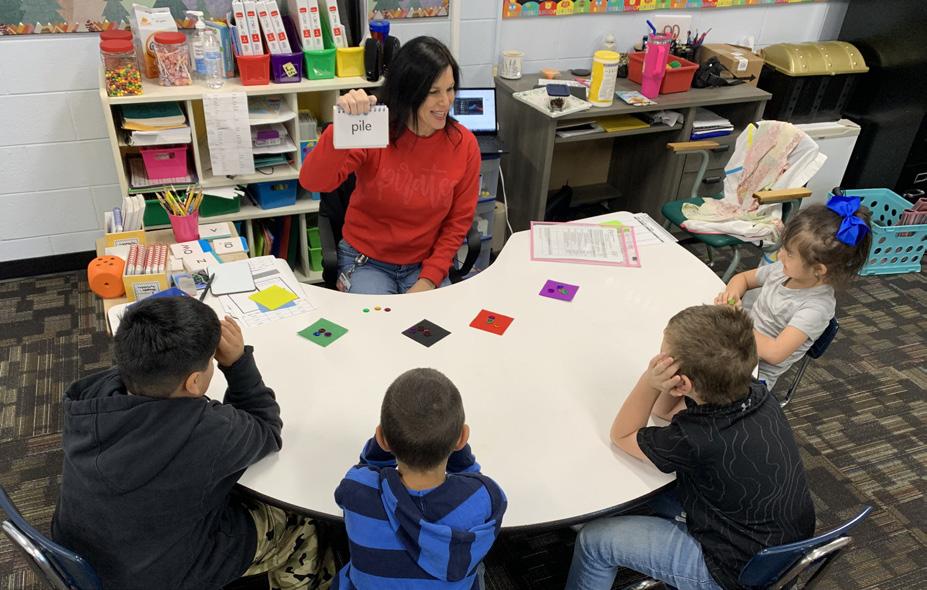
34 Professional Development You Won't Want to End (Seriously)
One district shares its amazing experience with CCOSA's Winning Strategies Playbook professional development series.
By Diane Tillery, Assistant Superintendent, Poteau Public Schools

CCOSA Staff
Dr. Pam Deering
CCOSA/OASA
Executive Director
Derald Glover
OASA Assistant
Executive Director
Chris LeGrande
OASSP/OMLEA
Executive Director
Glen Abshere
OAESP Executive Director
Andrea Kunkel
CCOSA General Counsel
ODSS Executive Director
Dr. Jeanene Barnett
Education Policy & Research Analyst
Kathy Dunn
Director of Professional Learning, State and Federal Programs
Madeline Pollard
Marketing, Events & Corporate
Sponsorships Specialist
Cynda Kolar
Business Manager
Lynne White
OAESP Executive Assistant & Assistant to the TLE Coordinator
Nicole Donnelly
Membership Coordinator & CEC Executive Assistant
Jen Knight
Executive Assistant
Ashlee Lacy
OASA Executive Assistant
Catherine Goree
OASSP/OMLEA/ODSS Executive Assistant
5 SPRING 2024 | better schools 5 SPRING 2024 | better schools
Leadership Conversations
Honoring the Legacy of Steven Crawford
Dr. Pam Deering, CCOSA/OASA Executive Director deering@ccosa.org
In the landscape of public education in Oklahoma, few people have left as indelible a mark as Steven Crawford. As an educator, administrator, and advocate, Crawford dedicated his life to the betterment of schools and the empowerment of students. His legacy is one of compassion and unwavering commitment to ensuring every child had access to quality education. As we remember and honor his contributions, we also reflect on the enduring impact he has left on the educational community in Oklahoma and beyond.
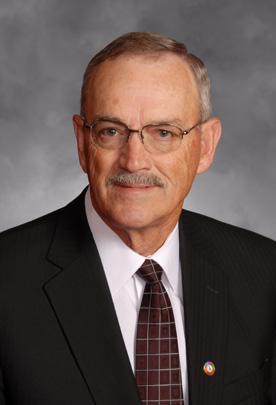
In March, we lost this “giant” of Oklahoma public education. From 2008-2016, Crawford served as the Executive Director of the Cooperative Council for Oklahoma School Administration (CCOSA) until he retired. After he retired, he served as the Co-Executive Director of Oklahoma Association Serving Impacted Schools (OASIS).
Steven Crawford’s journey in education began with a deep-seated belief in the transformative power of learning. Born and raised in Oklahoma, Crawford understood firsthand the challenges facing many students in the state. He pursued a career in education with the goal of addressing these challenges and creating opportunities for all children to succeed. After earning his teaching credentials, Crawford embarked on a career that would span over three decades, leaving an indelible mark at every step along the way.
Crawford attended school at Haywood High School, and then attended college at Oklahoma State University and East Central University. He received his bachelor’s degree in mathematics education in 1973. He began his career in education at Stuart Public Schools in 1974, becoming the elementary principal after one semester of teaching.
Crawford served as high school principal at Kiefer Public Schools. In 1980, he was named Superintendent of Moss Public Schools. At that time, he was the youngest superintendent in Oklahoma. Crawford also served as superintendent of Shattuck, Roff, and Byng Public Schools. In recognition of his years of outstanding work and service to Oklahoma education, Crawford was selected for the Oklahoma Foundation for Education Award for Excellence in Administration (2008), Oklahoma Educators Hall of Fame (2013), OSAC Outstanding Contributions to Oklahoma Education (2013), East Central University Education Hall of Fame (2016), and numerous additional state and national awards.
Crawford’s legacy will always be his fight for public education and his love for kids. He was tall in stature and in doing what was right. He was a personal friend who guided me through many difficult times. We served for many years in Impact Aid work and through tough times as we fought for fairness and equity in the program. He always had encouraging words to say and a positive outlook on life. His knowledge of school finance was a resource for many over the years.
Beyond the walls of his own schools, Crawford was a tireless advocate for public education who shaped education policy in Oklahoma. He championed initiatives to increase resources to schools and was instrumental in advocating for the passage of legislation that has created life-changing retirement benefits for educators. His expertise and credibility as an educator made him a trusted voice. Crawford firmly believed that education was the great equalizer and fought passionately to ensure that every child, regardless of background or circumstance, had the opportunity to fulfill their potential.
As we reflect on Steven Crawford’s legacy, we are reminded of the impact one person can have on the lives of countless others. His passion for education, coupled with his unwavering dedication to serving others, continues to inspire educators, students, and advocates across the state.
In honoring Steven Crawford, we also renew our commitment to the ideals for which he stood. We must carry forward his legacy of excellence and equity, ensuring that every child in Oklahoma has access to the highquality education they deserve. As we strive to build a brighter future for the next generation, let us remember the lessons taught by Steven Crawford: that through passion, perseverance, and a belief in the power of education, anything is possible. ■
 Pam Deering, Ph.D. CCOSA/OASA Executive Director
Pam Deering, Ph.D. CCOSA/OASA Executive Director
A scholarship fund has been established in Crawford’s memory. To contribute, please make checks payable to the Steven P. Crawford Scholarship fund and mail to Roff Public School, P.O. Box 157, Roff, OK 74865 or Brent Crawford, P.O. Box 89, Roff, OK 74865. Venmo payments will also be accepted @ stevenpcrawfordscholarshipfund
6 better schools | SPRING 2024

Behind the Scenes
Why CCOSA Sponsors Champion Public Education
Thousands of CCOSA members are champions for public education across the state of Oklahoma. But we don’t do this important work alone. We are fortunate to be joined by a network of more than 40 diverse, engaged sponsors who play a crucial role in supporting CCOSA’s mission. Sponsorship at CCOSA gives businesses unique opportunities to both engage with educators statewide and contribute to the advancement of public education. We reached out to several sponsors to understand their “why” behind supporting public education and CCOSA. Here’s what they had to say:
AMERICAN FIDELITY
Megan Hooper State Manager – Oklahoma
■ I support public education because I believe in long-term benefits for all individuals directly resulting from an ability to gain knowledge through public educators and public school systems.
■ I support CCOSA because they help school administrators gain effectiveness and tools to ensure the success of not only students but their teachers and peers.
COGNIA
Christina McCreary Director Southeast Region
■ I support public education because public schools are responsible for advancing learning for all students.
■ I support CCOSA because CCOSA supports continuous improvement for schools and for our state.
CORYELL ROOFING
Dr. Kyle Reynolds Oklahoma Education Consultant
■ I support public education because it is the foundation of our democracy that offers every single citizen the opportunity to find success and happiness.
■ I support CCOSA because the association provides vital support for school administrators and advocacy on behalf of all public schools in Oklahoma.
GRAND CANYON UNIVERSITY
Dom Apodaca, Director of Field Operations Southwest
■ I support public education because the future development and growth of our communities across America is dependent on public education.
■ I support CCOSA because this organization is instrumental in
supporting administrators and also important to legislative groundwork in the state of Oklahoma.
GRAND LIFE PHOTOGRAPHY
Jason Pierce, Owner
■ I support public education because it levels life’s playing field.
■ I support CCOSA for championing students, teachers, and educational excellence.
HORIZON FINANCIAL
Richard Collins Financial Advisor
■ I support public education because it invests in our communities.
■ I support CCOSA because their leadership and professional development makes a difference!
ISTATION
Heather Tennyson Senior Account Executive
■ I support public education because it is one of the most positive influences on a child’s life. Education is the world’s gamechanger.
■ I support CCOSA because they are so supportive of our educators and administrators. They fight the good fight for public ed!
MILLIKEN
Britanny Cast, Account Manager
■ I support public education because schools are the heartbeat of our communities and the only way to ensure a positive outcome for our children for generations to come.
■ I support CCOSA because I believe in their mission to promote quality administrative leadership in public education. Their effort to engage, promote, and strengthen education leaders across the state of Oklahoma is a worthy mission and one that Milliken and myself wholeheartedly support. Through our partnership
with CCOSA, we are able to provide innovative products that support district and facility building initiatives that create healthier learning environments for our students and educators. Teamwork makes the dream work.
OSIG
Rick Thomas Executive Director
■ We support public education because of the positive influence it has on our communities and our students. Schools serve all people and strive to give everyone the best education possible. Public schools are graduating students who will make a positive difference in our world.
■ We support CCOSA because of the awesome job they do with providing training for school administrators. Administrators need guidance and training to do their job at a high level, and this is what CCOSA provides.
RENAISSANCE LEARNING
Shelina Madrid-Garza Regional Field Marketing Manager
■ I support public education to accelerate learning for all children and adults of all ability levels and ethnic and social backgrounds worldwide.
■ I support CCOSA because we empower educators to see every student. ■
If you’re interested in becoming a sponsor and supporting public education through CCOSA, please reach out to Madeline Pollard at pollard@ccosa. org for any questions or information regarding sponsorship opportunities. We look forward to welcoming you as a valued partner in our mission to advance education in Oklahoma.
8 better schools | SPRING 2024

WOMEN IN SCHOOL LEADERSHIP
Another great opportunity for women leaders to network and learn together!
By Dr. Pam Deering, CCOSA Executive Director
We know that as women leaders in education, we face issues and challenges that are different from our counterparts. We need spaces that give us time to learn and grow together as well as spaces that are encouraging and supportive. This year, our theme was “Be a Light, Not a Shadow.” We asked our attendees, “What does it mean to you to be a light?” We learned how we could harness our energy and use that energy to serve others.
When we first began the Women in School Leadership Conference, 75 women school leaders attended a one-day meeting at Gaillardia Country Club in Oklahoma City. Our goal was to offer women school leaders the opportunity to hear relevant topics that included health and financial well-being. We also heard from successful school women legacy leaders. We had time to get to know one another. Our conference has since grown to nearly 400 women school leaders who are now bringing their teams from their districts to continue learning together. We have added keynote speakers, breakout sessions, and fun time together.
All of this would not have been possible without our fabulous women leaders, our supportive sponsors, and the excellent CCOSA team. Thank you on behalf of all who made this event a success each year. We hope that our women leaders found their lights and loved the time together. We can’t wait to see your light shine as you go back to your districts!
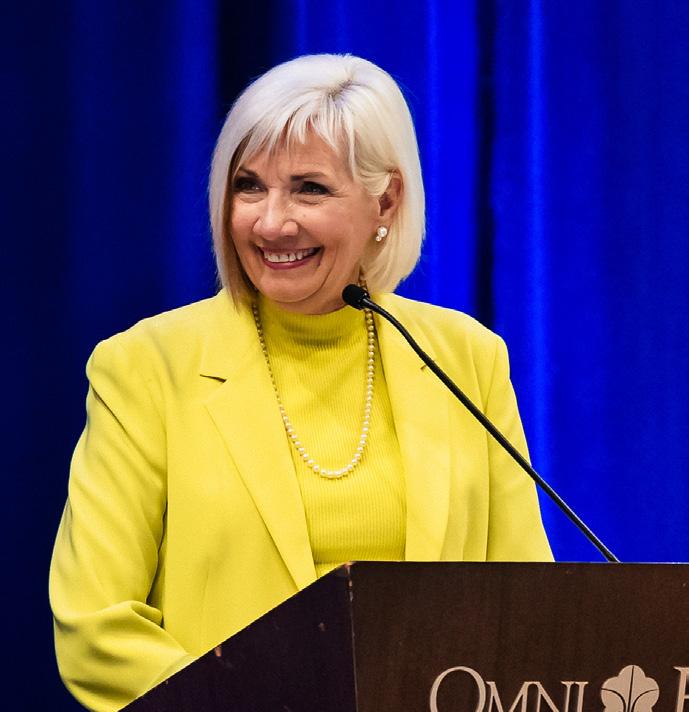
City in
March.
Our women leaders led many of the outstanding breakout sessions. Dr. Lisa Muller, Pryor Schools Superintendent, offered important statistics regarding women leaders:
■ 76% of classroom teachers are women
■ 56% of principals are women
■ 27% of superintendents are women
■ 23% of Oklahoma superintendents are women
We hope you enjoy these conference photos and the words of women leaders in attendance. ■
If you missed the conference this year, we hope to see you at the 2024 CCOSA Summer Leadership Conference (don’t miss our preview on page 41) and the Women in School Leadership Breakfast on Thursday, June 13, at the Oklahoma City Convention Center. Register now for the conference here.

10 better schools | SPRING 2024
Dr. Pam Deering welcomed attendees to the WISL Conference at the Omni Hotel in downtown Oklahoma
late
At the WISL conference, Tulsa Public Schools Superintendent Dr. Ebony Johnson addressed the importance of resilience in leadership.
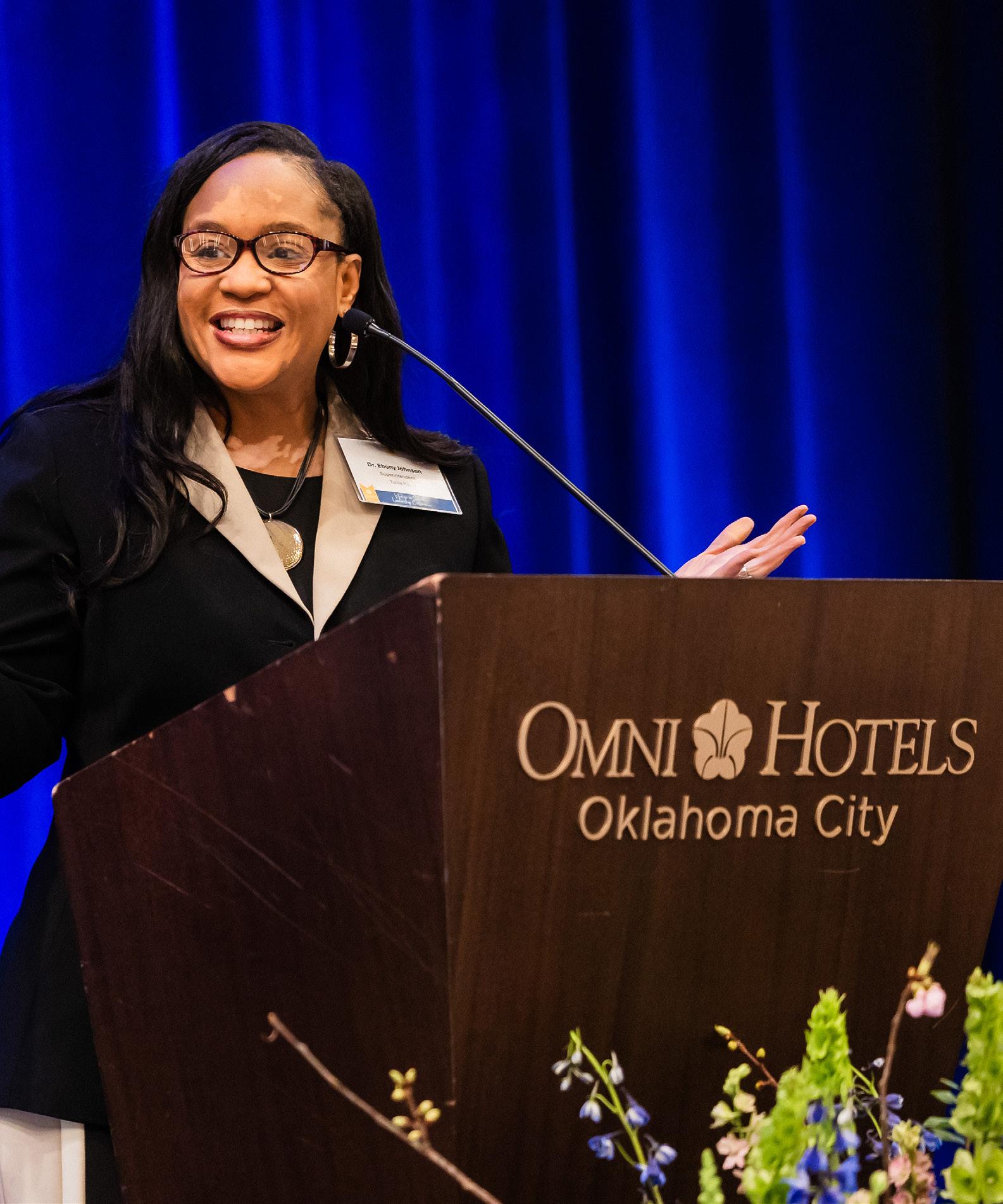

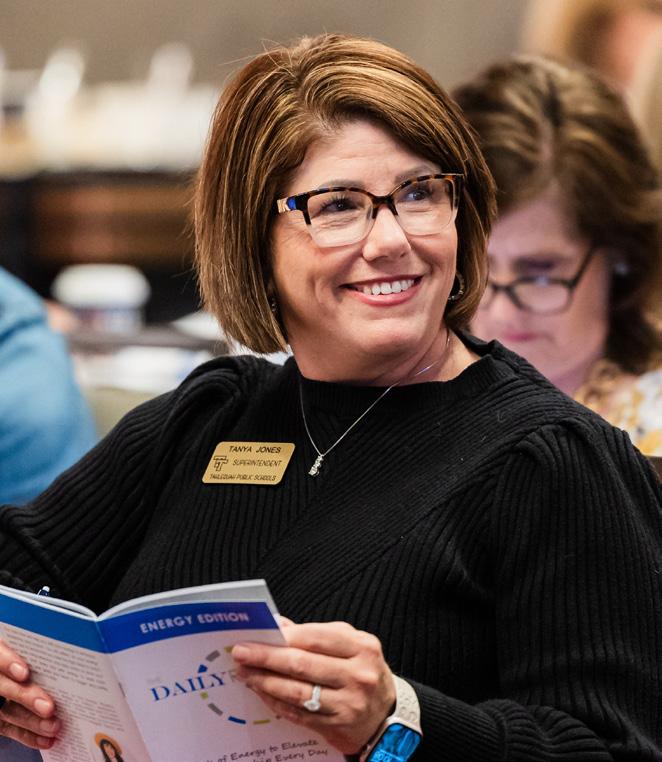
“I enjoy connecting and collaborating with colleagues knowing that together we can continue to elevate public education for students across this great state. Thank you to the CCOSA team for creating a meaningful conference that provides female leaders an opportunity to listen, learn, and grow professionally.”
– Dr. Stacey Butterfield, Superintendent, Jenks Public Schools
“CCOSA’s WISL conference is always one of the most uplifting and rewarding events I attend. I thoroughly enjoyed Kristen Brown’s session. It gave me cause to analyze the energy I give to all areas of my leadership and life. It is not often that we, as leaders, stop to consider these opportunities for growth on a personal and professional level. The conference allowed me to fellowship with colleagues from around the state and take time to focus on my light, to ensure that I can shine bright for those that I lead and serve.”
– Melissa Barlow, Yukon High School Principal
11 SPRING 2024 | better schools
Tahlequah Superintendent Tanya Jones at the WISL conference.
Nearly 400 women school leaders learned from their peers at the 2024 WISL conference.


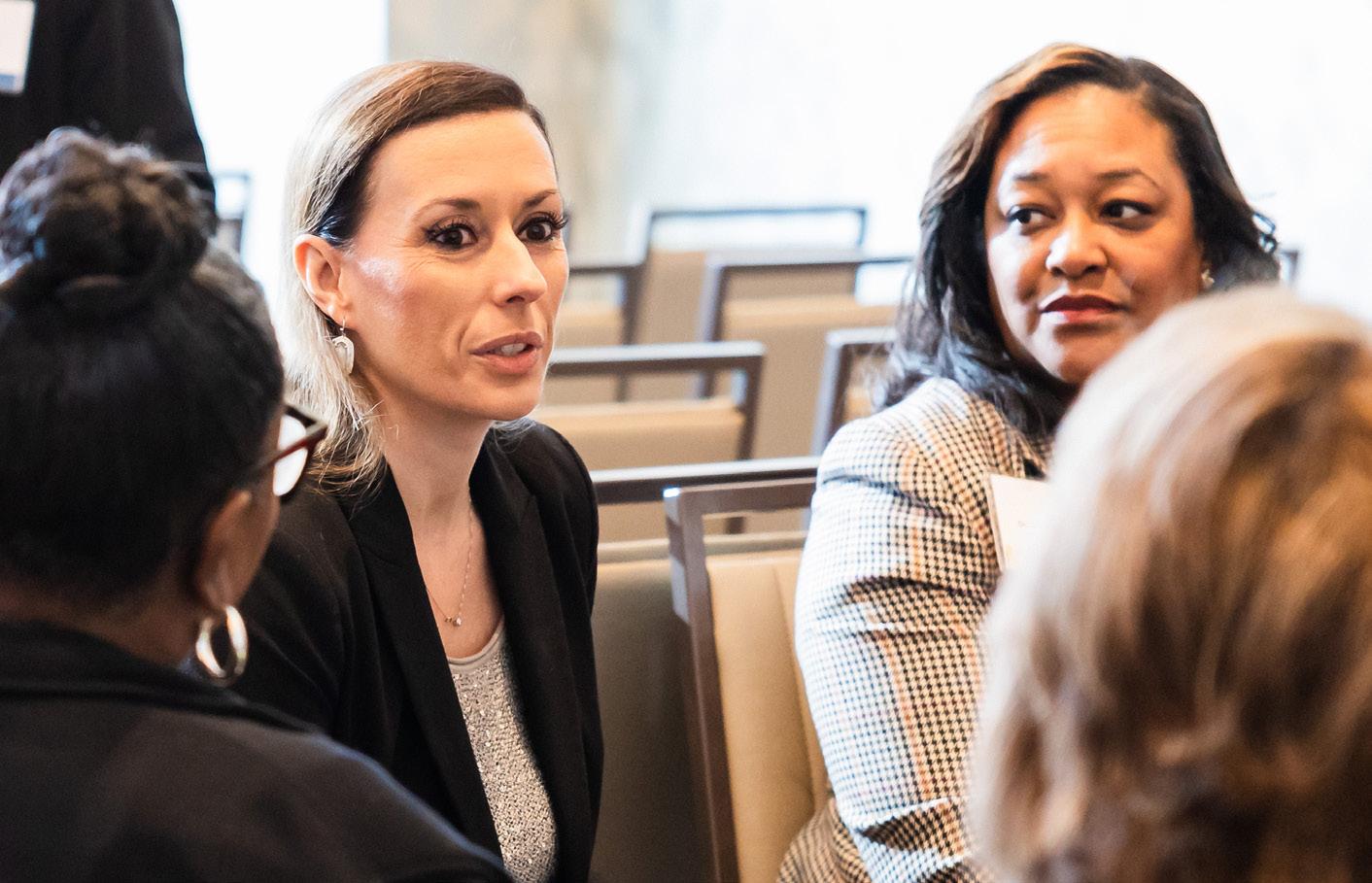
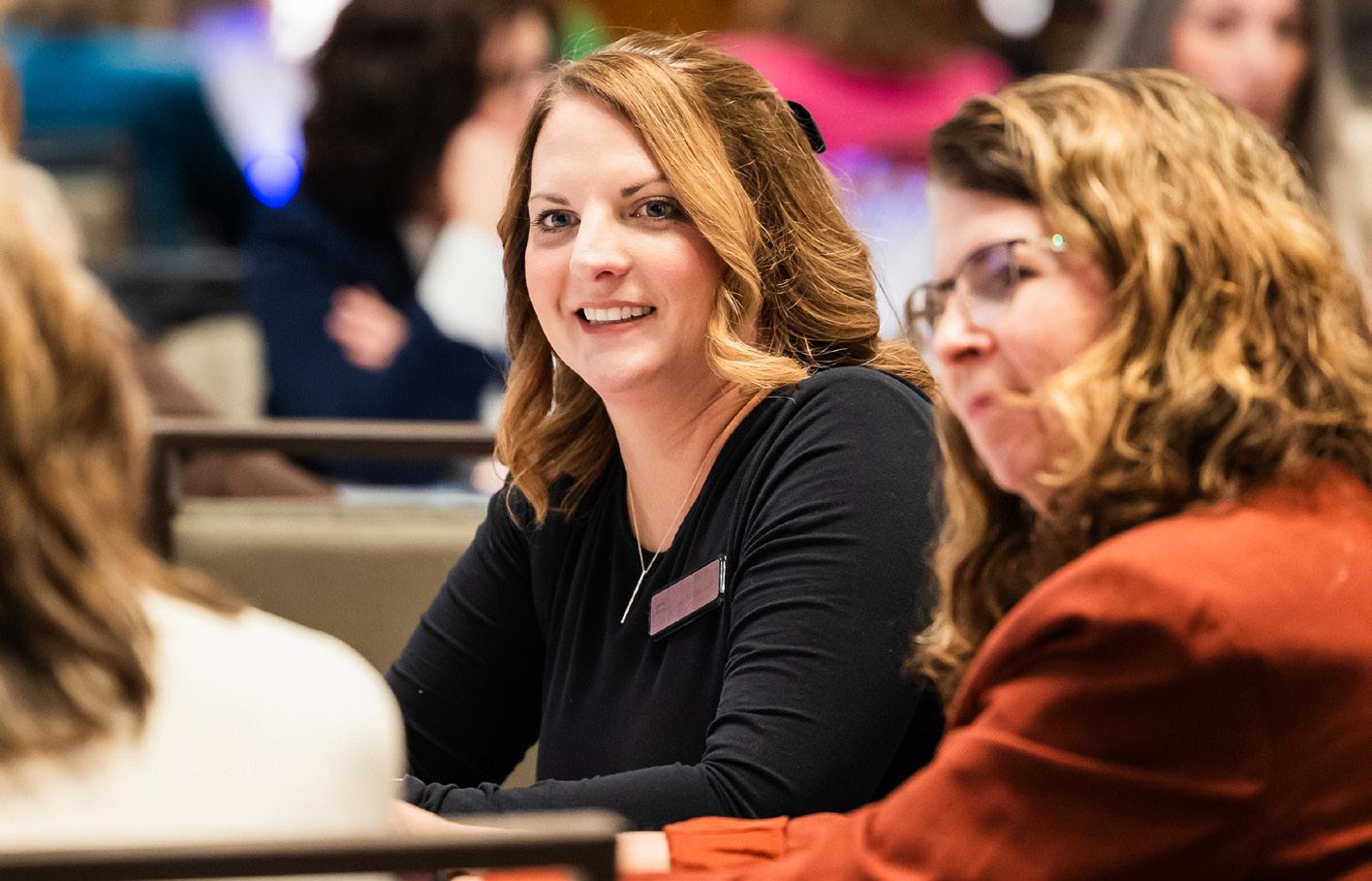
“The CCOSA Women’s Conference is one of the most important and gratifying opportunities for women to lift each other up, renew your own spirit, and create a network of sisterhood. Highly recommended – five stars!”
– Kristin Arnold, Assistant Superintendent of Student Services/ Human Resources, Sand Springs Public Schools
“The Women in Leadership conference ignited my passion light once again so I can go and continue being a light for my school community. Dr. Johnson from Tulsa Public Schools gave me professional chills up and down my spine through her words that the work before all of us in education is a beautiful challenge. To be in the company of phenomenal Oklahoma female leaders and engage in necessary conversations about leading provided me irreplaceable and useful knowledge.”
– Tara Burnett, Principal, Woodward Highland Park Elementary School
“The Women in School Leadership Conference provided invaluable networking opportunities and insightful workshops, empowering female educators to cultivate leadership skills and drive positive change in education. I left with renewed inspiration and a strengthened sense of community, ready to advocate for excellence in educational leadership roles.”
– Traci Newell, Principal, Elgin Lower Elementary School
12 better schools | SPRING 2024
Keynote speaker Kristen Brown’s topic was “Battling Burnout.”
Dr. Evelyn Kwanza, Director of Fine Arts for Norman Public Schools, at a WISL session.
Attendees enjoyed opportunities to connect with colleagues in several breakout sessions at the WISL Conference.
 – Stephanie Williams, Executive Director of Student Services, Norman Public Schools
– Stephanie Williams, Executive Director of Student Services, Norman Public Schools




13 SPRING 2024 | better schools
CAPTION Urordiu et, di senit imum potam quo Catil cultudemquam Rommorae tui et quonendumere temus concula bunte,
Samone Taylor, Assistant Principal at Millwood’s Early Learning Academy, at the WISL conference.
Women in Leadership Conference always serves as a great space to be inspired and reinvigorated as a woman in leadership. More importantly,
enjoy the time to connect and share experiences with colleagues.”
Sand Springs Superintendent Sherry Durkee led a breakout session, ”This Little Light of Mine,“ at the WISL conference.
“The
I
Simplify procurement for your district with BuyBoard Purchasing Cooperative. Hello, Oklahoma Contact David Ricketts, National Director for your procurement needs david.ricketts@buyboard.com or 913-424-5758 Endorsed by buyboard.com • 800-695-2919 • @buyboardcoop

Exterior Solutions Group Commercial Roofing Experts


Exterior Solutions Group delivers superior results for owners of commercial and industrial properties and institutional facilities in the following areas: ■ Roofing ■ Waterproofing ■ Metal ■ Coatings and Restoration ■ Green roofs ■ Exterior walls ■ Service/maintenance
ESG-ROOF
We are committed to working with you to build a long-term roofing strategy that maximizes your return on investment in your buildings. We call it strategic roof planning – making sure that you have a plan on how to deal with your roof today, tomorrow and into the future. (405)
555 Enterprise Drive, Edmond, Oklahoma 73013 210 S. 4th St., Suite H, Chickasha, Oklahoma 73018 Info@exteriorsolutionsgroup.com
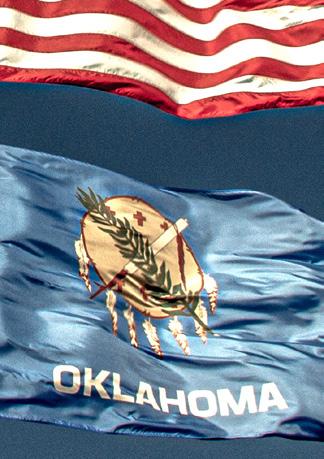
Approved or Disapproved? In this legislative update, we’re diving into the administrative rules process.
By Dr. Jeanene Barnett, CCOSA Education Policy & Research Analyst
This year, the Oklahoma State Department of Education (OSDE) has proposed more Administrative Rules, new and amended, than in recent history. The subject of these rules changes range from a change in district accreditation status based on a new definition of academic deficiency to failure to comply with a new definition of voluntary prayer. What is the purpose of this flurry of new rules? Is the OSDE usurping the legislature’s authority by proposing some new rules without proper authority? A review of the process for rules to become law can help us better understand what is at stake.
Oklahoma’s Administrative Procedures Act defines the road from approved rule to final law. As stated on the Oklahoma Secretary of State’s website, “The Administrative Procedures Act [75 O.S. §§ 250 et seq.] sets out a comprehensive process that provides YOU with the opportunity to participate in the rulemaking process. State agencies are required to accept public comment about proposed rules, notify you if you have requested advance notice of rulemaking proceedings, and may also hold hearings on proposed rules.”
In K-12 education, the process for rules to become law and entered into the Oklahoma Administrative Code (OAC) begins with Oklahoma State Department of Education (OSDE) and State Board of Education (SBE) approval. The agency proposes a new Administrative Rule in response to legislation that calls for the agency to promulgate rules, or the agency may propose an amendment to an existing rule. These proposals often include a notice period (usually 30 to 60 days) during which the public can provide comments or feedback. The agency usually holds public hearings to gather additional input.
has the authority to approve or disapprove the rule. The legislature’s role is clearly laid out in 75 O.S. § 250.2 (OSCN 2024), and it has “a right to disapprove a proposed permanent, promulgated, or emergency rule at any time if the Legislature determines such rule to be an imminent harm to the health, safety, or welfare of the public or the state or if the Legislature determines that a rule is not consistent with legislative intent.”
Oklahoma has approximately 150 regulatory agencies. All agency rules, including those from the OSDE as well as other state agencies, are reviewed through the House and Senate Administrative Rules Committees and then submitted to the full bodies with all or some rules identified for approval and some identified for disapproval. The two chambers consider the committees’ recommendations and vote on the rules through a Joint Resolution.
Upon approval or disapproval by the legislature, the rules package then moves to the Governor for consideration. Final approved rules must then be published in the Oklahoma Register and will not become effective until at least 10 days after publication. When the rule goes into effect on the specified date, from that point forward, it carries the force of law and must be followed by affected parties. Most rules impacting Oklahoma public schools are published through the Oklahoma Administrative Code (OAC), Section 210

As part of its work on behalf of public education, CCOSA routinely provides comments like the ones in this document to proposed Administrative Rules.
The next step, after the public comment period closes, requires OSDE to consider the public comment feedback and decide whether to move forward with its proposed rules as originally proposed or with modifications. This past year, the agency has made only a few minor changes to proposed rules based on public comment. In the past, many substantive changes have been made in response to public comments, or the rule has been discarded entirely. If SBE ultimately approves the proposed rules, the agency must submit the final rule to the Oklahoma legislature for review. The legislature then
Throughout this process, transparency and public participation are essential elements to ensure that agency rules are fair, reasonable, and aligned with legislative intent. Any divergence from the statutory procedures governing Administrative Rules compromises legislative intent and potentially saddles school districts with new laws that could be harmful to schools and communities. An April 18 “Oklahoma Voice” article provides an overview of the Administrative Rules process and legislative discussions surrounding OSDE and SBE rules changes, and references a 2023 Attorney General’s opinion requiring passage of a law before an agency can promulgate rules.
To learn more about the Administrative Rules process, Oklahoma’s official rules, rulemaking notices, and executive orders are compiled in The Oklahoma Register and the Oklahoma Administrative Code by the Office of Administrative Rules, which is a division of the Secretary of State. ■
15 SPRING 2024 | better schools

Our Dual Defense expertise focuses on both physical security and cybersecurity solutions, ensuring that students and teachers can concentrate on the most important aspect of school: learning and growth.

challenges; we’re anticipating the needs of tomorrow, securing a foundation for education where every student can thrive in safety and confidence.


Physical Security: State-of-the-art access control, surveillance, and entry management.


and endpoint security.
E-rate Service Provider: Our dedicated E-rate team ensures we are meeting deadlines and compliance requirements.


Seamless Integration: A unified approach ensures complete coverage and peace of mind. Ongoing IT Support: Serving as your entire IT department or filling in specific hard-to-staff areas.
Phone: 405.523.2162 info@unitedsystemsok.com
you ready to find out what United can do for you? Contact us today to have our experts assess your school’s security needs.
today’s
Are
Fit for You: Customized technology selection and installation tailored to meet the unique needs of your school.
DUAL DEFENSE Protecting Our Schools Inside and Out UnitedSystemsOK.com
E-rate
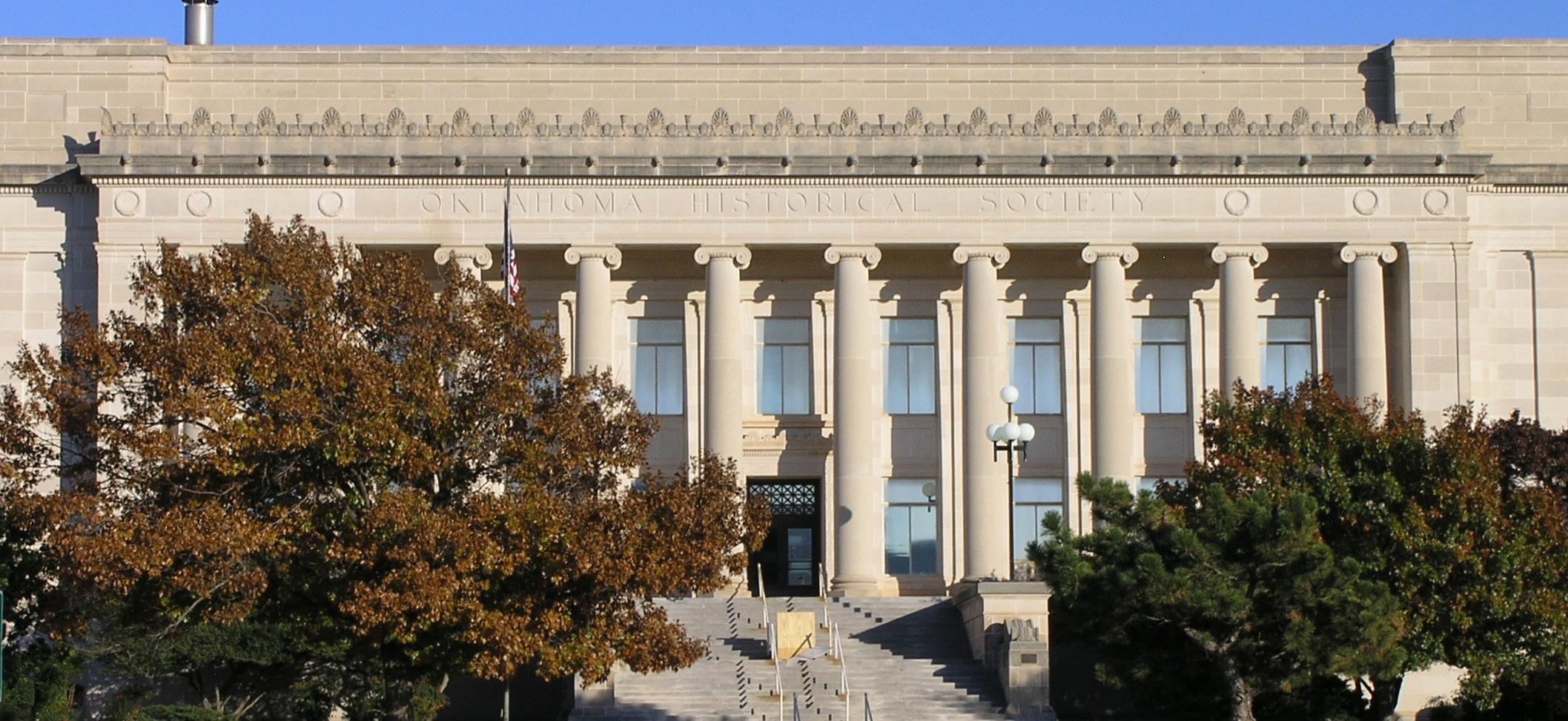
Standing Strong for Local Control CCOSA’s amicus curiae brief in support of an Edmond Public Schools lawsuit
By Andrea Kunkel, CCOSA General Counsel and ODSS Executive Director
Public comments on several of the new and amended Administrative Rules recently proposed by the Oklahoma State Department of Education (OSDE) have focused on whether the OSDE and State Board of Education (SBE) have the statutory authority to adopt and enforce those rules. On February 20, 2024, Edmond Public Schools filed an action against the SBE, State Superintendent Ryan Walters, and the OSDE (collectively, “Respondents”), asking the Oklahoma Supreme Court to determine whether SBE’s recently amended School Library Media Program Rules are valid and enforceable. (To avoid repetition, all references to OSDE and SBE’s proposed Administrative Rules can be found by clicking the previous link to an SBE Board meeting packet.)
The district filed the action after OSDE ordered it to remove two books from its high school libraries that OSDE’s Library Media Advisory Committee had adjudged “pornographic” or “sexualized content” under OAC 210:35-3-121.1. If the District removes the books, it faces litigation threatened by parents and students who oppose removal. If SBE upholds OSDE’s order of removal and the District does not remove the books, it faces a finding of “willful noncompliance” and downgraded accreditation status under OAC 210:35-3-126. A major part of the District’s argument to the Court is that the rules are invalid and unenforceable because they exceed the authority the legislature delegated to OSDE and SBE – an unconstitutional encroachment of the executive branch (including state agencies) into the policymaking authority of the legislature.
Besides the brief the District filed with the Court, the Oklahoma State School Boards Association (OSSBA) and CCOSA also filed amicus curiae briefs supporting the district’s position. Those briefs explain how OSDE and SBE’s general approach to rule-making erodes local board control of public school districts and how the rules contradict a specific state statute through which the legislature left decisions about which books and other materials reflect community standards for the population the library media center serves to public school districts.
In its brief, OSSBA explains the broad impact of OSDE and SBE’s rulemaking on local control. Within the general legislative framework of SBE powers and duties set out in state statute, SBE is provided with power to “[a]dopt policies and make rules for the operation of the public school system of the state.” SBE has relied on that broad and general statutory power as authority to adopt a wide
17 SPRING 2024 | better schools
DANIEL MAYER, CREATIVE
COMMONS
variety of rules it deems appropriate for public schools, recognizing few if any limits on its authority. As OSSBA states, “This unrestrained legislative authority, when wielded by an executive agency, is an unconstitutional delegation of legislative authority as prohibited by Articles IV and V of the Oklahoma Constitution. Likewise, allowing such a broad interpretation of the statute gives the agency an unfettered ability to create rather than to facilitate policy, and subjects locally elected school boards and school districts to the political whims of the Respondents.”
CCOSA’s brief addresses the specific impact of the School Library Media Program Rules on local control. OSDE and SBE relied upon the same broad and general statutory power referenced above to authorize their adoption of the rules. But the rules contravene the legislature’s 2022-enacted statute, which provides:
As school library media center resources are finite, the library media program shall be reflective of the community standards for the population the library media
center serves when acquiring an age-appropriate collection of print materials, nonprint materials, multimedia resources, equipment, and supplies adequate in quality and quantity to meet the needs of students in all areas of the school library media program.
The statute does not attempt to identify what resources are “reflective of the community standards for the population the library media center serves,” “age-appropriate,” or “adequate in quality to . . . meet the needs of students.” In explanation, the author, Rep. and Speakerdesignate Kyle Hilbert, commented in a media interview, “Yes, it’s vague, but it’s vague in such a way to allow local districts to decide what fits and doesn’t fit.”
However, the rules restrict school districts from carrying out local decisions to acquire and maintain appropriate resources. SBE added language to the rules defining and prohibiting “pornographic material” and “sexualized content” in school library media programs and a process to require the removal of items that SDE and SBE deem prohibited. Although a school district
determines through its local process that a particular item it acquires is “reflective of the community standards for the population the library media center serves,” OSDE and SBE can overrule the district and require the item’s removal, with the threat of downgraded accreditation to ensure compliance. All school districts are required to adopt policy that identifies the process it will use to review and determine a library media center resource challenge. But local control is undermined when OSDE and SBE enforce the rules process.
The strength and survival of public schools depends on the willingness and ability of local parents, school personnel, board members and the community to help shape children’s educational experience. OSDE and SBE’s current approach to rulemaking erodes local control. CCOSA supports Edmond Public Schools in its efforts to address this important issue at the Oklahoma Supreme Court. Although we can only guess at the timing of the Court’s decision, the Court’s April 15 decision to retain jurisdiction of the case is a positive sign. ■
Close Achievement Gaps and Reach Academic Targets


18 better schools | SPRING 2024
Formative Assessments and Supplemental Curriculum designed to help PK-12 students succeed in Reading, Spanish Literacy, Math, and US History.
istation.com Learn More




This is Marcus roof
No-cost, certified, & complete we come, we see, we inform contact us today for a no-cost certified inspection of your facility. CoryellRoofing.com 866-858-2081
Prestigious Sponsor
whisperer
Proud
The Federal Common Education Budget
AASA’s federal common education budget overview shows mostly flat federal funding next school year.
In March 2024, the House and Senate passed a $1.2 trillion FY24 spending bill that was signed by President Biden on March 23. Under the spending constraints of the Fiscal Responsibility Act, the package freezes most education funding while providing modest increases for some key programs, such as Title I and IDEA.
Executive Director of Federal Programs for Oklahoma City Public Schools, Rex Wall, says: “Signed into law on March 23, the most recent federal appropriations act provides a $20 million increase to Title I, Part A. While on the surface, $20 million dollars may seem like a substantial sum, it really is not when viewed through a national lens. In comparison, the increase in the current fiscal year was
$850 million, of which Oklahoma received $12.7 million more than the prior year. A $20 million dollar increase will mean either flat or actual decreases in district allocations going into Fiscal Year 2025. Allocations are calculated on a per-pupil basis, determined by the number of qualifying children enrolled in the school district the previous year. These enrollment numbers and how they shift on an annual basis across the nation impact how much funding districts receive. With so small a cushion, any changes will be felt to a greater extent than in previous years with much larger increases.”
See full details of the package on the next page, provided by AASA Policy Analyst Tara Thomas and used here with permission.


20 better schools | SPRING 2024
By Tara Thomas, AASA Policy Analyst
Fiscal Year 2024 runs October 1, 2023, through September 30, 2024 (yes, we are already halfway through FY24), and FY24 funding will be in schools for the 2024-2025 school year. What follows is an overview of the K-12 education funding included in the final spending package.
Important context here are the budget caps that are in place for FY24 and FY25 as a result of the Fiscal Responsibility Act (FRA) of 2023 – a bill that raised the debt ceiling for two years in exchange for spending caps. The FRA caps non-defense discretionary (NDD) funding for FY24 at roughly $704 billion, but a “sidedeal” provided an additional $69 billion, bringing FY24 levels close to those of FY23. FY25 is anticipated to have a 1% increase in discretionary spending, but once we account for allowed adjustments, FY25 allocations will be at a cap even lower than that of FY24, which means Congress will have to make larger cuts to funding.

Title I:
Programs That Received Increased Funding
$18.389 billion (+ $20 million)
IDEA (Special Education Grants to States):
$14.213 billion (+ $20 million)
Rural Education Achievement Program (REAP):
$220 million (+ $5 million)
IMPACT Aid:
$1.625 billion (+ $7 million)
Perkins Career & Technical Education (State grants):
$1.439 billion (+ $10 million)
Head Start:
$12.3 billion (+ $275 million)
Child Care and Development Block Grants (CCDBG):
$8.7 billion (+ $725 million)
Historically, education funding has remained stagnant or is cut when spending caps are in place. Luckily, the FY24 package is drastically different from the House FY24 proposal that gutted Title I funding by 80% (a $14 billion cut) and sought to eliminate numerous education programs. Given the current constraints, the small increases allotted for the key K-12 education formula programs should be commended.
ANALYSIS: The FY24 package provides $79.1 billion to the Department of Education (USED) – a $500 million cut below the FY2023. However, the majority of K-12 education programs received level funding while a few key programs – most notably Title I and IDEA – received modest increases of $20 million. The charts below show the programs that received increases, level funding, or cuts.

Programs That Received Level Funding
Comprehensive Literacy Development Grants: $194 million
Innovative Approaches to Literacy: $30 million
Migrant Education: $375 million
Neglected/Delinquent: $49 million
Title II: $2.19 billion
21st Century Community Learning Centers: $1.3 billion
Education for Homeless Children: $129 million
Native Hawaiian Education:
$45.897 million
Alaska Native Education: $44.953 million
ESSA Title IV: $1.38 billion
School Safety National Activities: $216 million
Promise Neighborhoods: $91 million
Full Service Community Schools: $150 million
Supporting Effective Educator Development: $90 million
Charter School Grants: $440 million
Magnet Schools Assistance: $139 million
English Language Acquisition: $890 million
Teacher Quality Partnerships: $70 million
Also notable, Congress has continued investment in student mental health and school safety. The FY24 package provided $74 million for SchoolBased Mental Health Services Grants, which was not included in the FY23 appropriations package but received funding in 2023 from the Bipartisan Safer Communities Act. Additionally, the first FY24 omnibus that Congress passed on March 6 – which funded six other agencies – included level funding for programs within the STOP School Violence Act:
■ $82 million to the Bureau of Juvenile Assistance (BJA)
■ $53 million for the Community Oriented Policing Services (COPS) Office

Programs That Received Cuts
Education Innovation and Research:
$259 million (- $25 million)
Teacher and School Leader
Incentive Grants: $60 million (- $113 million)
Perkins Career & Technical Education (National Program):
$12 million (- $20 million)
Comprehensive Centers: $50 million (- $10 million)
State Assessment: $380 million (- $10 million)
Cybersecurity (Homeland Security/CISA): $1.18 billion (- $121 million) ■
21 SPRING 2024 | better schools

How to Align Professional Development With Federal Funding
What schools need to know about using federal funds to pay for professional development activities
By Kathy Dunn, CCOSA Director of Professional Learning for State and Federal Programs
WHO: School leaders who want to use federal funds to pay for professional development
WHAT: New limits on how professional development money can be spent from Title programs in recent guidance from the Oklahoma State Department of Education (OSDE) Office of Title Services
WHEN: Starting with the Fiscal Year 2025 Consolidated Application
WHERE: Within the budget applications for Title programs
WHY: For a school district to use federal funds to pay for professional development activities, the OSDE Office of Title Services will require professional development that is:
■ aligned to the district’s goals developed using data from the needs assessment for providing a well-rounded education with academic success for students.
■ part of the ongoing work of the district toward its goals; sustained (not standalone, one-day, or short-
term workshops), intensive, collaborative, job-embedded, data-driven, and classroomfocused.
■ aligned to one of the 18 approved professional development activities listed in the Every Student Succeeds Act (ESSA), Section 8101(42) listed on the next two pages.
HOW: Plan using the framework below. Start now to meet the professional development requirements in districts’ FY25 federal budgets.
22
“Goals” Requirement
The first step is to create district and school goals for the coming year using your district’s data from the Needs Assessment usually done in the spring. From these goals, you will develop action steps for your district in the Comprehensive District Academic Plan (CDAP) that is a new template for the 2024-2025 school year. From your sitelevel goals, you will develop the new Title I Schoolwide Plan (SWP) that is also a new template for next school year.
“Ongoing” Requirement
The next consideration is to determine what professional development will help your district reach the goals in your CDAP and SWP. If you wish to use federal funds to pay for professional development expenses, you must show how the district will continue to train and monitor the strategies learned during the professional development activity. For example, if your district has PLC meetings or instructional coaches, you could use those supports to continue the learning, or you might have continuing training at your site led by the principal or a lead teacher. Some districts use book studies to deepen their understanding of how the professional development helps them reach their goals.
“Alignment to 1 of 18 Approved PD Activities” in ESSA Requirement
The OSDE Office of Title Services is requiring that any professional development paid with federal funds must align with one of the 18 approved activities described in Title II guidance, ESSA, Section 8101(42)(B)(i)-xviii) listed below.
1. Improve and increase teachers’:
a. knowledge of the academic subjects the teachers teach;
b. understanding of how students learn; and
c. ability to analyze student work and achievement from multiple sources, including how to adjust instructional strategies, assessments, and materials based on such analysis;
2. Are an integral part of broad schoolwide and districtwide educational improvement plans;
3. Allow personalized plans for each educator to address the educator’s specific needs identified in observation or other feedback;
4. Improve classroom management skills;
5. Support the recruitment, hiring, and training of effective teachers, including teachers who became certified through State and local alternative routes to certification;
6. Advance teacher understanding of:
a. effective instructional strategies that are evidence-based; and
b. strategies for improving student academic achievement or substantially increasing the knowledge and teaching skills of teachers;
7. Are aligned with, and directly related to, academic goals of the school or local educational agency;
Example of how a district might develop the professional development plan to satisfy Federal Programs monitoring and the requirements for using federal funds to pay for professional development:
FUNDING SOURCE (i.e. State, 511, 541, etc.)

511
DATE
8-5/6 and 9-24-2024 and ongoing FY25
PLANNED PROFESSIONAL DEVELOPMENT ACTIVITY
DESCRIPTION WITH ONGOING TRAINING
Creating Uplifting Classrooms to Support All Learners (CCOSA/K-20 Center)
Instructional Coaches monthly meetings and continuing jobembedded support
Book studies selected by the individual sites
Planning Effective Instruction for English Learners Using Lexia
541 9-3-2024
Plan instruction based on Lexia data for English Learners presented at PLC meetings 2 times per month led by teacher leaders and instructional coaches
Add rows for all planned PD
STAFF TO BE TRAINED
All new teachers (~8) 8 x $450 = $3,600
Support early career teachers with classroom coaching including management strategies #4. Improve classroom management skills to meet academic goals.
All elementary teachers who teach ELs (~35)
All elementary instructional coaches $3,500
Develop teachers’ understanding of how to use the Lexia program effectively with English Learners #9. Give teachers of English learners, and other teachers and instructional staff, the knowledge and skills to provide instruction, language, and academic support.
23 SPRING 2024 | better schools
NUMBER
TOTAL COST DISTRICT OR SITE
TITLE PROG. APPROVED
OF
GOAL
PD #1-18
8. Are developed with extensive participation of teachers, principals, other school leaders, parents, representatives of Indian tribes (as applicable), and administrators of schools to be served under this Act;
9. Are designed to give teachers of English learners, and other teachers and instructional staff, the knowledge and skills to provide instruction and appropriate language and academic support services to those children, including the appropriate use of curricula and assessments;
10. To the extent appropriate, provide training for teachers, principals, and other school leaders in the use of technology (including education about the harms of copyright piracy), so that technology and technology applications are effectively used in the classroom to improve teaching and learning in the curricula and academic subjects in which the teachers teach;
11. As a whole, are regularly evaluated for their impact on increased teacher effectiveness and improved student academic achievement, with the findings of the evaluations used to improve the quality of professional development;
12. Are designed to give teachers of children with disabilities or children with developmental delays, and other teachers and instructional staff, the knowledge and skills to provide instruction and academic support services to those children, including positive behavioral interventions and supports, multi-tier system of supports, and use of accommodations;
13. Include instruction in the use of data and assessments to inform and instruct classroom practice;

14. Include instruction in ways that teachers, principals, other school leaders, specialized instructional support personnel, and school administrators may work more effectively with parents and families;
15. Involve the forming of partnerships with institutions of higher education, including, as applicable, Tribal Colleges and Universities as defined in section 316(b) of the Higher Education Act of 1965 (20 U.S.C. 1059c(b)), to establish school-based teacher, principal, and other school leader training programs that provide prospective teachers, novice teachers, principals, and other school leaders with an opportunity to work under the guidance of experienced teachers, principals, other school leaders, and faculty of such institutions;
16. Create programs to enable paraprofessionals (assisting teachers employed by a local educational agency receiving assistance under part A of Title I) to obtain the education necessary for those paraprofessionals to become certified and licensed teachers;
17. Provide follow-up training to teachers who have participated in activities described in this paragraph that are designed to ensure that the knowledge and skills learned by the teachers are implemented in the classroom; and
18. Where practicable, provide jointly for school staff and other early childhood education program providers to address the transition to elementary school, including issues related to school readiness.
As districts begin to plan for a new school year, professional development activities can be an integral part of the district or school’s overall strategy to reach the goals that have been established by a comprehensive needs assessment and consultation with stakeholders. Follow the steps in this article to spend federal Title II funds for training, and enjoy your professional growth! ■
24 better schools | SPRING 2024

DON’T LET UNEMPLOYMENT COSTS SIPHON DOLLARS FROM YOUR DISTRICT’S CLASSROOMS.
WE WILL GUIDE YOU THROUGH THE EMPLOYMENT PROCESS FROM START TO FINISH!
Let OSSBA help your district with unemployment issues, plus save money and time by letting our attorneys handle your claims, follow ups, appeals and more. We also offer additional employment services to support school districts, including an online library of information and documents, training opportunities and legal information on employment issues.
The Enduring Impact of House Bill 1017 on Oklahoma Public Education

More than 30 years after its passage, CCOSA is working to ensure funding from this landmark law is aligned with its intent.
By Derald Glover, OASA Assistant Executive Director
Since its approval more than 30 years ago, House Bill 1017 (HB 1017) has become a bedrock for Oklahoma public education, its influence still present in many aspects of schools. Its ultimate passage, however, was not an easy feat. The 1980s was a tumultuous time in Oklahoma public schools, with several lawsuits centered around the lack of equity in school funding across the state. In 1980, a group of schools formed the Fair School Finance Council of Oklahoma (FSFC), and in 1990, forty of those schools filed suit against the state, contending the state’s funding system delivered insufficient funds to offer an adequate education to all students.
During this time, an education reform study, Task Force 2000, recommended several reform measures to the legislature to address large class sizes, teacher pay and certification, and state testing. Due to the task force, the efforts of FSFC, and a potential teacher walkout, HB 1017 was approved. It is important to note that Republican governor Henry Bellmon championed this reform effort. It did not come without a fight. Opposition to the tax increases needed to fund the new law was significant. Ultimately, a 1991 vote of the people established that no further tax increases could be passed without a 3/4th majority vote of the legislature or a vote of the people. That compromise has proven to be problematic – it has been very difficult to pass a tax increase for needed services since its passage.
HB 1017 stands as possibly the most significant education reform measure ever passed by the Oklahoma legislature. The law created the Education Reform Revolving Fund (ERRF) which, along with the general revenue fund, mineral leasing fund, education technology fund, and lottery fund, provide all the money for the state funding formula. CCOSA monitors these funds on a monthly basis, and in summer 2023, we noted that the ERRF had reserves of over $500 million, funds that should be allocated to schools for the reforms established in HB 1017.
In recent months, Oklahoma elected officials have proposed using ERRF reserves for initiatives outside the scope of HB 1017. Because of CCOSA’s monitoring of the funds, we researched the growth of the reserves by comparing appropriations over the last eight years to collections and notified some elected officials that the proposed use was outside the scope of the fund. The fund has consistently overcollected, particularly in the last three years. According to the latest Board of Equalization report, they are at $580 million, and if collections come in as projected, the figure could grow to $630 million.
Knowing the history of HB 1017 is critical to protecting these dedicated dollars for education. It is important to shine light on the excess ERRF reserves and to ensure that any proposed uses meet the intent of the law to help schools continue to reduce class sizes, hire staff, pay teachers, and other purposes identified in state law.
HB 1017 brought sweeping changes to public education, but even with the tax increases, funding was unable to meet all of its reform measures, and many fell to the wayside. Many small schools consolidated during the years following its passage. However, it still represented

Henry Bellmon was Oklahoma’s Governor from 1963-1967 and from 1987-1991.
a significant effort to address various issues plaguing the state’s education system and was intended to improve the quality of education for Oklahoma’s students. Let's review its key aspects.
Funding Mechanism
The law established the ERRF to provide a dedicated source of funding for education. By leveraging multiple funding sources, including sales tax increases, income tax revisions, lottery revenue, and other sources, HB 1017 was intended to provide a stable and robust financial foundation for its initiatives. This diversified funding approach helped to ensure that the reforms outlined in the law could be adequately funded and sustained over time, facilitating long-term improvements in Oklahoma’s education system. ERRF derived its funding from various sources to support its initiatives to improve education in Oklahoma:
■ Sales Tax Increase: One of the primary funding sources for HB 1017 was a one-cent increase in the state sales tax. This increase was specifically earmarked for education and represented a significant commitment of state resources to support the reforms outlined in the law.
26 better schools | SPRING 2024
HENRY BELLMON COLLECTION, OKLAHOMA HISTORICAL SOCIETY
■ Income Tax Revisions: The law also included revisions to the state’s income tax structure, which generated additional revenue for education. Increases in corporate and personal income tax were to provide a more stable and sustainable funding source for education initiatives.
■ Lottery Revenue and Other Funds: Eventually the Oklahoma lottery funds were also included in HB 1017 funding, as were use tax, cigarette/tobacco tax, and tribal gaming revenues, among others.
Teacher Salaries
One of the most notable provisions of HB 1017 was its focus on increasing teacher salaries. It provided for a multi-year pay raise for teachers to help attract and retain high-quality educators in the state. This was a crucial recognition of the importance of teachers in the education system.
Class Size Reduction
Another important aspect of the law was its emphasis on reducing class sizes. At the time, it was believed that smaller class sizes could lead to improved student outcomes,
and HB 1017 sought to address this issue by providing funding to reduce the student-to-teacher ratio in classrooms.
Accountability Measures
HB 1017 also included measures to increase accountability in the education system. This included requirements for state-level testing and establishing performance standards for students and schools. This portion of the law was designed to hold schools accountable for their performance by driving improvements in educational outcomes.
Support for At-Risk Students
The law included provisions to provide additional support for at-risk students, such as those from lowincome backgrounds or with special educational needs. This recognition of the importance of addressing the needs of all students, regardless of their background, was a positive aspect of HB 1017.
Overall, HB 1017 represented a landmark effort to improve education in Oklahoma. By addressing issues such as teacher salaries, class sizes, and accountability, the law sought to ensure that all students in the state had access to a high-quality education. Now, it is important that schools monitor the revenue sources that fund ERRF and that elected officials continue to implement the law as intended and strive to find funding sources to ensure reforms are continued. The recent elimination of the grocery sales tax and efforts to reduce personal income tax and corporate tax threaten to cut funds intended for ERRF.
Another issue has arisen around the $580 million in reserves that have built up in the ERRF fund over the past several years. State leaders have previously made attempts to use these reserves to offset state obligations outside of public education. The charts below show how ERRF collections have exceeded appropriations over the past few years. Fiscal year 2024 will likely yield another $50 million increase in reserves. CCOSA will continue to monitor these funds and fight to ensure that excess funds are used for the purposes intended by HB 1017. ■
ERRF: Appropriations and Collections
■ The February 15, 2024, Board of Equalization (BOE) packet showed HB 1017 ERRF reserves of $582 million.
■ BOE packets show reserve growth, with additional growth likely based on FY2024 estimates.
■ According to BOE data, ERRF collections since FY2018 have exceeded appropriations by $622,658,900 (see chart).
■ It is unclear why there is a discrepancy between the BOE packet and historic data.
1,500,000,000
1,000,000,000
500,000,000 0

27 SPRING 2024 | better schools
HB1017 ERRF APPROPRIATION $762,726,125 $818,166,976 $854,300,525 $1,015,074,419 $875,289,631 $890,120,375 $1,036,701,366 HB1017 ERRF ACTUAL COLLECTIONS $751,365,382 $831,313,785 $783,868,826 $1,270,689,508 $1,096,521,656 $1,104,577,794 $1,088,250,540* NET DIFFERENCE $-11,360,743 $13,146,809 $-70,431,699 $255,615,089 $221,232,025 $214,457,419 $51,549,174* Total reserves through FY23 $622,658,900 $674,208,074* FY2018 FY2019 FY2020 FY2021 FY2022 FY2023 FY2018 FY2019 FY2020 FY2021 FY2022 FY2023 FY2024
APPROPRIATED COLLECTED *FY24 estimates

28 better schools | SPRING 2024
PORTRAIT OF A MODERN HIGH SCHOOL Graduate
Four case studies feature future-ready graduates ready to enter a diverse and dynamic postsecondary world. Our schools must prepare them for it.
By Rob Miller, Superintendent of Bixby Public Schools
In a prescient quote attributed to John Dewey over a century ago, he proposed, “If we teach today’s students as we taught yesterday’s, we rob them of tomorrow.” With access to an ever-expanding knowledge base and generative AI literally at the fingertips of today’s youth, the urgency of evolving our current teaching and learning systems to meet modern learners’ needs has never been more significant.
There has been a recent push for states to better define what it means to be a successful graduate. This process seeks to move the definition beyond traditional expectations related to seat time and course requirements to a more fluid description with goals to influence education policy, often called a portrait or profile of a graduate.
According to these new precepts, students should leave high school with agreed-upon skills, such as creativity, critical thinking, problem-solving, communication, teamwork, student agency, and civic engagement. Many employers seek these qualities and soft skills to respond to America’s rapidly changing work landscape.
At the root of this discussion are a few simple yet paradoxically complex questions for educators and policymakers:
■ What does it mean to be an educated person today?
■ What are the critical skills, knowledge, attributes, and mindsets that high school graduates possess?
■ What are the appropriate roles and responsibilities of the teacher?
■ How must the structure, function, and design of schools and learning environments change?
With the continuing growth of industrial automation, robotics, and innovative technologies, we must do all we can to prepare students for the jobs of tomorrow. Our society’s economic engine depends on productive and engaged citizens. The role of education should be to create a knowledgeable and engaged citizenry ready to exercise meaningful roles in our world. Our current framework restricts students’ options and limits schools’ ability to prepare them for a future world of work that none of them fully understand.
The best way to predict the future is to help create it.
The following case studies feature hypothetical students representing future-ready students and schools. These students need flexibility and autonomy to pursue their aims, not just a series of arbitrary hurdles based on a hundred-year-old educational model.
29 SPRING 2024 | better schools
LEFT: Bixby High School seniors moments away from beginning their postsecondary journeys.

ALEX MORRIS
A Leader of Tomorrow
Alex Morris is a dynamic student passionate about learning, creativity, and community engagement. Alex has not only excelled academically but has also made a significant impact on the school community through various extracurricular activities.
With a solid academic foundation, Alex will graduate with well-rounded skills and knowledge. A high GPA and participation in advanced placement courses showcase a commitment to educational excellence. Alex’s curiosity and eagerness to explore diverse subjects have made him a standout student in STEM and humanities courses.
Beyond the classroom, Alex has actively participated in extracurricular activities, showcasing a commitment to personal development and community involvement. He was a vital member of the school’s robotics team, where he honed his problem-solving and teamwork skills. Additionally, Alex contributed to the school newspaper, demonstrating excellent communication and writing abilities.
Alex is also passionate about hobbies that showcase a well-rounded personality. Whether playing a musical instrument, participating in community service projects, or engaging in outdoor activities, Alex values the importance of a balanced and fulfilling lifestyle.
Living in the age of technology, Alex is tech-savvy and embraces innovation. He has demonstrated proficiency using various digital tools for learning, communication, and problem-solving. With an eye toward the future, Alex

is considering pursuing a career in a field that aligns with emerging technologies or societal challenges.
Alex’s commitment to making a positive impact extends beyond the school walls. He has been actively involved in community service projects, demonstrating responsibility and empathy. Whether volunteering at local shelters, organizing fundraisers, or participating in environmental initiatives, Alex has shown a dedication to creating a better world.
With a solid academic record and a diverse skill set, Alex is eager to embark on the next chapter of his journey. Whether pursuing higher education or entering the workforce, Alex is well-equipped to thrive in a dynamic and evolving landscape. His passion for learning, leadership skills, and commitment to community service make him a promising candidate for success in any field.
JORDAN WILLIAMS A Commitment to Service
Jordan Williams stands out as a student with a deep sense of duty, discipline, and a strong desire to serve in the military. Jordan’s high school journey is marked by a dedication to leadership, physical fitness, and a steadfast commitment to the principles of service and sacrifice.
30 better schools | SPRING 2024
Bixby High School’s 2023 graduation ceremony.
Throughout high school, Jordan emerged as a natural leader, exemplifying discipline and integrity in every endeavor. Whether participating in JROTC or taking on leadership roles in various schools, Jordan’s ability to lead by example and inspire her peers has impacted the school community.

Recognizing the importance of physical fitness in military service, Jordan dedicated herself to maintaining high physical readiness. Involvement in sports, regular fitness training, and organized drills and exercises demonstrate Jordan’s commitment to meeting the physical demands of military service.
Driving Jordan’s decision to enlist in the military is a genuine desire to serve her country and contribute to something larger than herself. This service-oriented mindset is evident not only in Jordan’s academic and extracurricular pursuits but also in her involvement in community service projects that aim to make a positive impact on the lives of others.
The challenges and demands of military life require resilience and adaptability, qualities Jordan has cultivated throughout high school. Whether facing academic challenges, participating in physically demanding activities, or overcoming obstacles in leadership roles, Jordan has consistently demonstrated the ability to adapt and persevere.
With a clear sense of purpose and a commitment to honor, courage, and responsibility, Jordan aspires to make a
meaningful contribution to the military. Whether pursuing a specific branch, engaging in specialized training, or undertaking various assignments, Jordan is eager to embrace the challenges and responsibilities of military service.
Jordan’s high school experience has been preparation for the rigors of military life. From learning the importance of teamwork and leadership to honing physical fitness and discipline, Jordan is well-equipped to navigate the challenges and responsibilities of serving in the armed forces.
TAYLOR
SIMMONS
A Melodic Journey
Taylor Simmons has an unwavering passion for music and dreams of becoming a performer. A harmonious blend of academic excellence, musical prowess, and a deep commitment to artistic expression has marked her high school journey. At the heart of Taylor’s identity is a profound love for music. Throughout high school, Taylor has demonstrated exceptional musical talent, specializing in classical and contemporary genres. As a dedicated school orchestra and choir member, Taylor showcased her instrumental and vocal skills and contributed to the school community’s vibrant musical culture.
Despite a primary focus on music, Taylor maintained a commendable academic record. Balancing the demands of a rigorous curriculum with the needs of rehearsals and performances, Taylor’s commitment to both academic

31 SPRING 2024 | better schools
Norman North seniors at their 2023
graduation
ceremony.
and artistic pursuits underscores her dedication and discipline.
In addition to formal music ensembles, Taylor took the initiative to explore and engage in extracurricular activities that nurtured her love for music. Whether organizing impromptu jam sessions, collaborating with fellow musicians, or participating in local talent shows, Taylor’s journey extended beyond the classroom, creating a dynamic and supportive musical community.

A highlight of Taylor’s high school career is her performances. From solo recitals to leading roles in musical productions, Taylor’s stage presence, vocal range, and instrumental proficiency have captivated audiences, earning accolades and admiration within the school and local community.
With a deep-seated passion for music, Taylor envisions a future as a professional performer. Whether pursuing a degree in music, attending a conservatory, or diving directly into music, Taylor’s ambition is clear: to share her love for music with a broader audience and make a meaningful impact through her art.
Taylor’s artistic journey goes beyond traditional genres. She has embraced technology and modern platforms to experiment with new sounds and collaborate with musicians globally. This forward-thinking approach positions Taylor at the intersection of tradition and innovation, ready to navigate the ever-evolving landscape of the music industry.
Beyond personal aspirations, Taylor recognizes the power of music to inspire and connect people. She has been actively involved in community outreach programs, using her musical talents to bring joy to hospitals, retirement homes, and local events. Taylor’s commitment to using music as a tool for positive change reflects a broader vision of contributing to the well-being of society through the arts.
MICHAEL THOMPSON A Culinary Odyssey
Michael Thompson has a passion for culinary arts and a burning desire to pursue a career as a professional chef. Michael’s high school journey has been marked by creativity in the kitchen, a dedication to culinary excellence, and a commitment to mastering the art and science of cooking.
Michael’s journey through high school is seasoned with a love for culinary creativity. Whether experimenting with new recipes, participating in cooking competitions, or organizing culinary events, Michael has showcased a natural flair for combining flavors, textures, and presentation in a way that delights the senses.
Michael excelled not only in traditional academic subjects but also in the specialized culinary arts field. Enrolled in culinary classes, Michael honed his skills in knife techniques, culinary theory, and menu planning. His ability to blend theoretical knowledge with hands-on experience has set him apart as a standout culinary student.
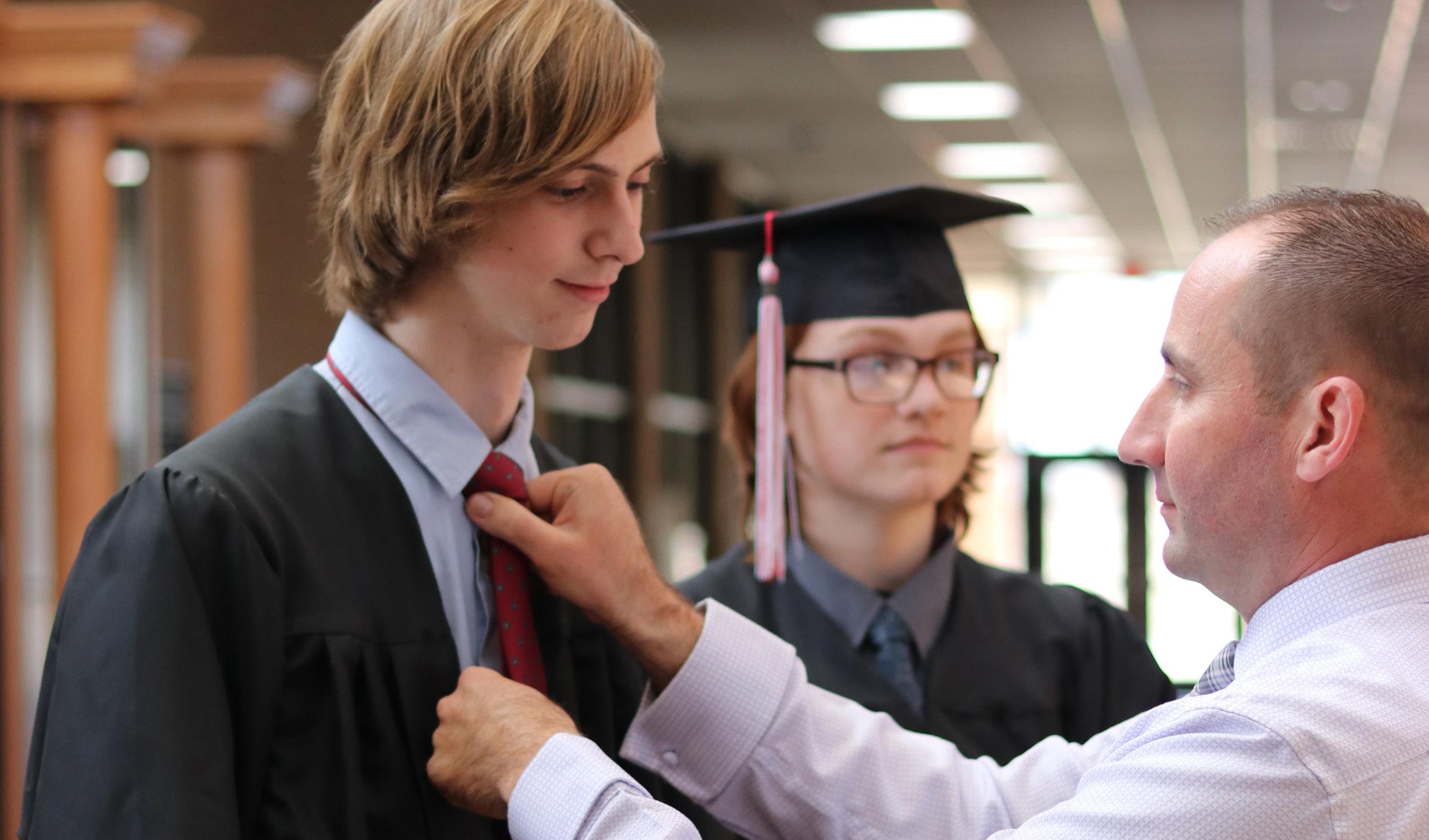
32 better schools | SPRING 2024
High school Principal Ben Pemberton with members of the Fort Gibson Class of 2023.
Beyond the classroom, Michael has actively sought opportunities to expand his culinary repertoire. Participation in cooking clubs, internships at local restaurants, and collaboration with culinary professionals have provided Michael with diverse experiences and insights into the dynamic world of gastronomy.
Michael’s love for culinary arts extends beyond the act of cooking. He is fascinated by the cultural significance of food and its ability to bring people together. Whether exploring international cuisines, participating in food festivals, or engaging in community outreach through foodrelated initiatives, Michael sees cooking as a form of cultural expression and connection.

Michael emerged as a natural leader in the culinary realm. Whether leading a kitchen brigade during school events or coordinating culinary projects, Michael’s ability to inspire and guide peers has contributed to a positive and collaborative culinary community within the school.
With a clear vision of a culinary future, Michael aspires to attend a renowned culinary school to refine his skills and knowledge further. Whether pursuing a degree in culinary arts, pastry arts, or a specialized culinary program, Michael is eager to immerse himself in an environment that nurtures creativity and provides the expertise needed to excel in the culinary industry.
Beyond working in established kitchens, Michael harbors dreams of entrepreneurship. The prospect of owning a
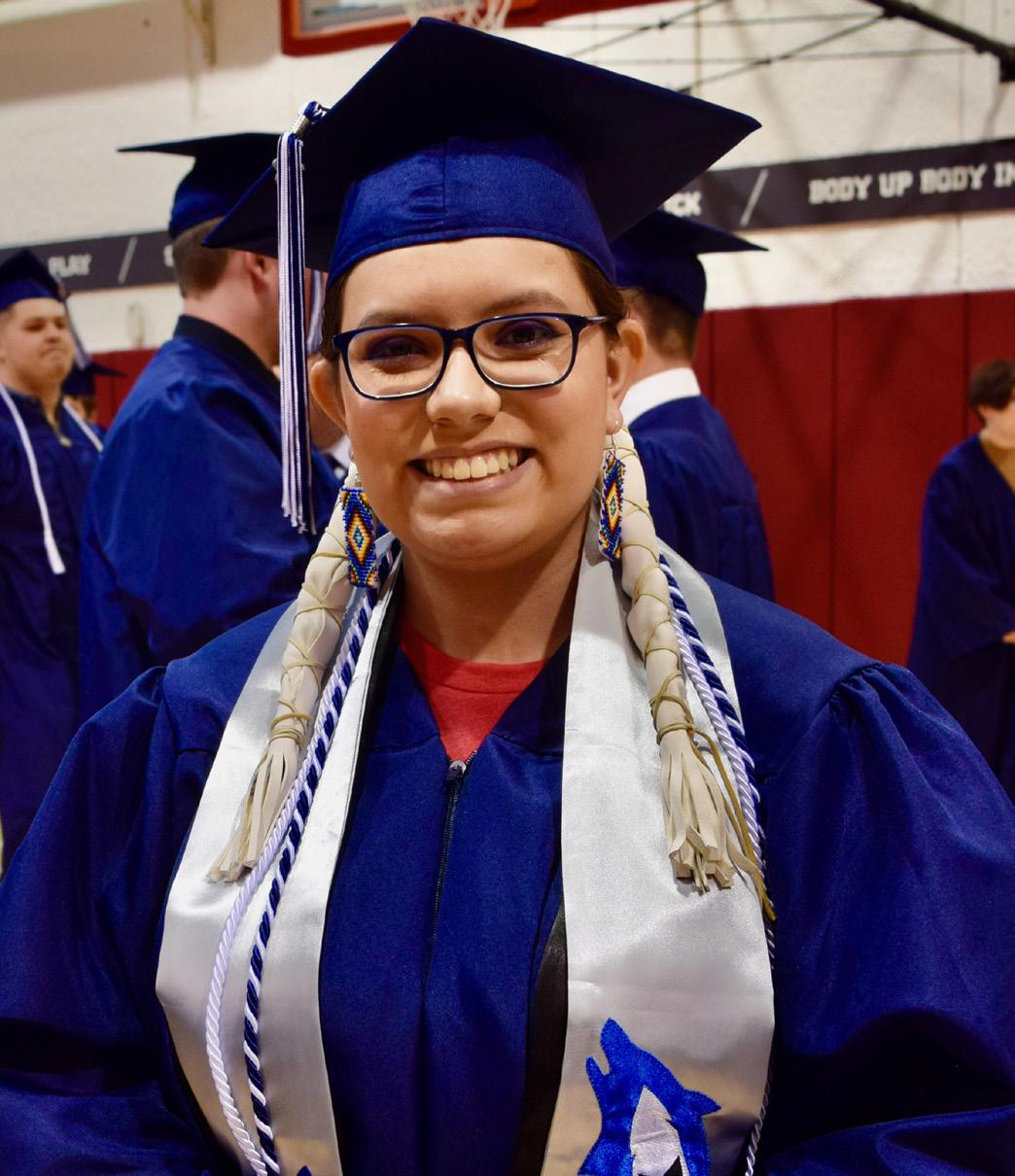
restaurant or a food-related business fuels his ambition. Michael envisions creating a unique culinary experience that reflects his creativity, passion, and commitment to sustainable and locally sourced ingredients.
Michael’s culinary journey is not just about personal success; it’s also about giving back to the community. He actively engages in initiatives that use food to address social issues, such as participating in community kitchens, organizing charity events, and collaborating with local farmers and producers.
Four high school students on very different paths to success and fulfillment – a future software engineer, a soldier, a musician, and a chef – represent the best of human potential and are worthy of a secondary educational experience focused on their unique strengths and passions, not a cookie-cutter education based on a workforce model that’s changing faster than any of us can imagine.
It’s their future, not ours. ■
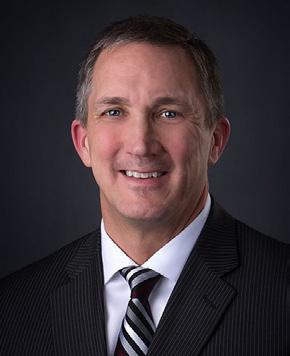
NOTE: Last fall, Rep. Rhonda Baker, House Common Education Committee Chair, convened an interim study to determine whether Oklahoma’s graduation requirements should be updated to meet the individual needs of students and modern workforce requirements. In October, CCOSA convened a Graduation Requirements working group of OASA and OASSP members to consider options that would work best for Oklahoma students while also recognizing the continued teacher shortage. This committee, under the leadership of Clinton Public Schools Superintendent Tyler Bridges and Jenks Public Schools Superintendent Dr. Stacey Butterfield, met multiple times over the course of several months to provide input and guidance at the request of Rep. Baker. If passed into law, the resulting bill, House Bill 3278, by Rep. Baker and Sen. Adam Pugh, will require students to complete modernized graduation requirements in 8th through 12th grade beginning in the 2025-2026 school year.
33 SPRING 2024 | better schools
Rob Miller is Superintendent of Bixby Public Schools.
A 2023 Shawnee High school senior in tribal regalia.

34 better schools | SPRING 2024

Professional Development You Won’t Want to End (Seriously)
How one Oklahoma district is using CCOSA’s Winning Strategies Playbook series to benefit student learning.
By Diane Tillery, Assistant Superintendent of Poteau Public Schools
We have all probably heard the quote, “If you fail to plan, you are planning to fail.” Coaches don’t leave games to chance; they spend hours working on their playbooks as they prepare for athletic competitions. Our work in education is far too important for us to leave to chance. While it may seem daunting for a district to develop a “playbook” that would help ensure success for our teachers and students, CCOSA has stepped in with a professional development opportunity that allows districts to do just that.
In July 2023, Poteau Public Schools began participating in CCOSA’s Winning Strategies Playbook training. This four-part professional development series brings instructional leaders from several districts together, where they are able to use a “playbook resource” developed by CCOSA to learn from one another. From day one, we knew this professional development would be relevant and impactful. We were given a “playbook resource” that was filled with information and examples that we have been using regularly to help us coach our teachers on strategies that improve teaching methods and increase student learning. In Session 1, we learned the importance of aligning our standards and curriculum to meet students’ needs. After this session, we realized we needed to revisit our curriculum maps and pacing
guides. In October, our district held PD sessions that helped us focus on what we were doing well and where we needed to make adjustments in order to improve instruction and maximize student
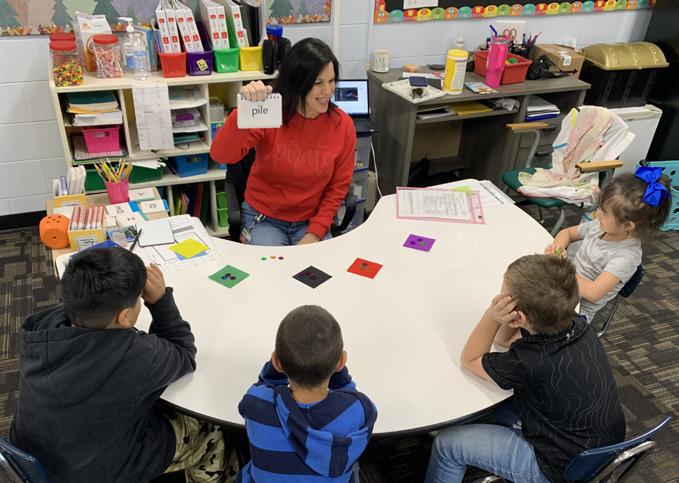
As participants in CCOSA’s Winning Strategies Playbook professional development, leaders from Poteau Public Schools have learned classroom strategies to improve student learning. All photos in this article feature Poteau students and educators.
35 SPRING 2024 | better schools

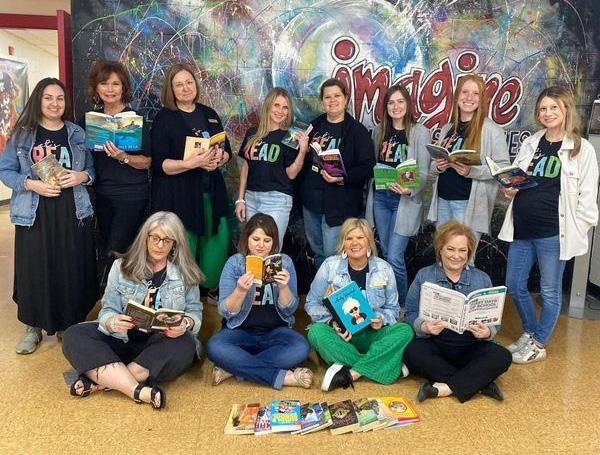
learning. During site PLC time, all core content teachers worked on establishing power standards (the academic standards that are most critical for students to master at each grade level). Moving into next school year, our teachers will continue to collaborate to prioritize standards into three categories: those that are a must, those that will be beneficial, and those that would be helpful to know but are not necessarily crucial.
Session 2 involved us “studying game film and stat sheets,” otherwise known as examining and interpreting our data. Schools can be known for being “data rich but action poor,” so we have been focusing on what quality data looks like, how much data we need in order to evaluate our progress effectively, and then what we need to actually do with that data.
During Session 3, we learned ways to respond when our students aren’t meeting their learning goals. When we aren’t getting the results we expect, our students need us to intervene quickly. This session has helped us hone in on our multi-tiered system of supports plan and eliminate strategies that aren’t effective.
Our final session covered how to develop instructional leaders and effective professional development plans. We had already been moving away from district-wide PD to focus on the needs of our staff at each site, and the information gleaned from this session has helped us be more responsive to the individual growth opportunities our teachers need as well as the importance of having teachers who are instructional leaders.
We had six staff members –including two principals, three instructional coaches, and
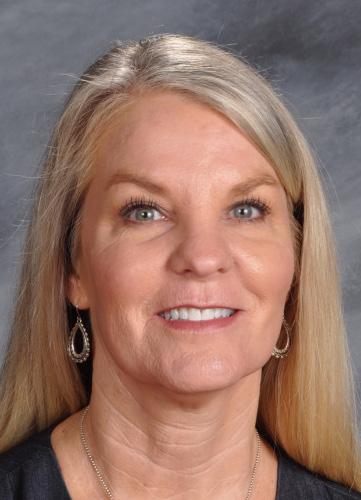
the assistant superintendent – attend this professional development, and all of us looked forward to the training each session. It has been something we are able to use daily, and it truly has helped us concentrate on what really matters. We were grateful for the insight other school leaders were able to share with us during these sessions. I think it speaks volumes when we don’t want PD to end! ■
Diane Tillery has been an educator for 26 years, working as an elementary and middle school teacher before moving into various district leadership roles. She currently serves as the Assistant Superintendent for Poteau Public Schools, where she is blessed to work with the best team of administrators, faculty, and staff as they strive to make learning relevant and enjoyable for their students. Her favorite thing to do is spend time with her seven grandkids.
CCOSA offers the Winning Strategies Playbook: How to Lead Student Learning series annually in Oklahoma City and Tulsa. Click on ccosa.org’s Professional Learning tab for FY 2025 dates.
36 better schools | SPRING 2024


Learn More: sylogist.com/ed (800) 749-5691 (Formerly WenGAGE) Accounting & Student Information Systems sylogist.com/ed-demo Schedule a demo to see our systems in action!
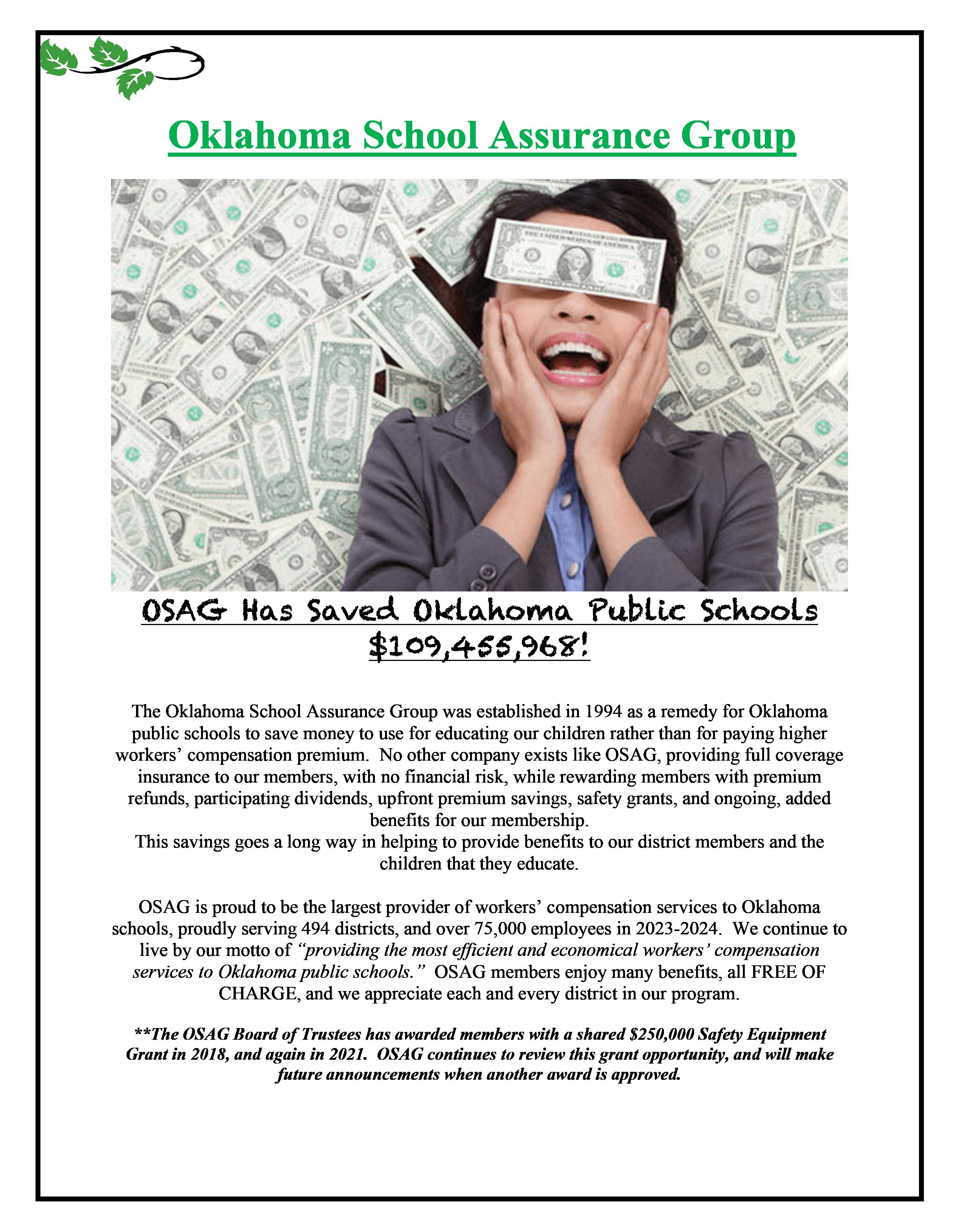
Finish Strong: A Principal’s Guide to Wellness in a Busy Season
ICYMI, highlights from the OAESP Leadership Conference
By Jessica Cabeen
How are you? No, really.
As the school year hurtles toward its conclusion, with programs, special events, and activities at school, along with the myriad of personal obligations at home, this can be an overwhelmingly busy time for school leaders. Instead of focusing on the holiday season, I want to share insights on a topic close to my heart – wellness during these hectic times. As we gear up for end-of-year celebrations and assessments, it’s crucial to ensure that our own well-being remains a priority. Below are a few ideas of how principals can navigate the hustle while maintaining a healthy balance.
Embrace the Spirit of Giving – To Yourself
Within this whirlwind of responsibilities, make a conscious effort to give back to yourself. Set aside moments of self-care amidst the end-of-year chaos. Whether it’s indulging in a quiet cup of tea, taking a leisurely stroll, or simply unwinding with a good book, these small acts of selfkindness can rejuvenate your spirit and replenish your energy.
» Want more insight and ideas in this area? Read this Edutopia story: How Administrators Can Avoid Burnout
Set Boundaries and Prioritize
With a flurry of events and obligations, it’s essential to set realistic boundaries and prioritize tasks. Identify what truly needs your attention and what can wait. Communicate openly with your team about expectations and, whenever possible, delegate responsibilities to lighten the load for everyone involved.
» Need support in this area? Check out my blog post on Preparing to Pause


Connect With Your Support System
The end of the school year can bring both excitement and stress. Don’t navigate this season alone; lean on your support system. Reach out to fellow principals, share experiences, and offer support to one another. This sense of camaraderie can provide invaluable strength and encouragement during busy times.
» Looking to make new connections? Start up (or restart) your Professional Learning Network through social media. And feel free to find and follow me on Instagram and Twitter (I will ever say Twitter first, then remember X).
Celebrate Achievements and Milestones
As the academic year draws to a close, take time to celebrate the achievements and milestones of your school community. Reflect on the positive impact you’ve collectively made and acknowledge the hard work of your team. This not only boosts morale but also sets a positive tone for the upcoming year.
Focus on Leading at Work AND Living a Life
The end of the school year presents an opportunity to model a healthy work-life integration. Demonstrate the importance of taking breaks, spending quality time with loved ones, and recharging for the challenges ahead. By prioritizing balance, you inspire your staff to do the same.
» For some final tips and thoughts check out this Edutopia resource: 5 Ways to Protect Your Time as a School Leader
Before you go……
As the school year reaches its climax, remember to prioritize your wellbeing amidst the hustle and bustle. Give back to yourself, set boundaries, celebrate achievements, lean on your support system, and model a healthy work-life balance. By nurturing your own wellness, you not only replenish your own spirit but also foster a positive and vibrant school environment for all. Wishing you a joyful and rejuvenating conclusion to the school year! ■
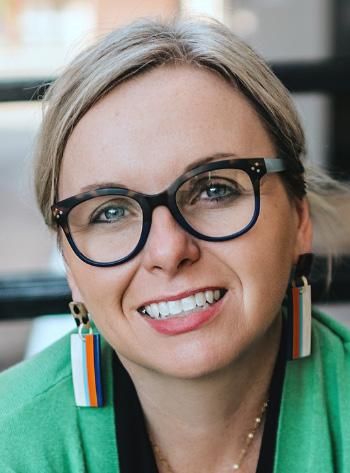
Jessica Cabeen, a sought-after speaker and trainer who enjoys getting to learn and lead with other educators across the nation, was the keynote speaker at the OAESP Leadership Conference in February 2024. She can be found on Instagram, Facebook, and Twitter @ JessicaCabeen. Want to learn more or dive into balance a little more? Check out Jessica’s most recent book, “Principal in Balance: Leading at Work and Living a Life,” available on https://amzn.to/3sGkPIe. Connect with her at jessicacabeen.com or follow her on Instagram and Twitter.
39 SPRING 2024 | better schools

We’re “Champions for Kids”
A preview of the CCOSA Summer Leadership Conference
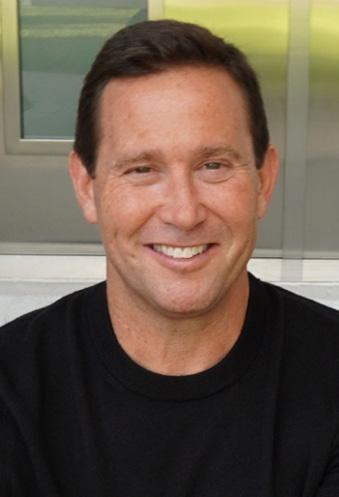

Get ready to ignite your passion for education and leadership at the 2024 CCOSA Summer Leadership Conference June 12-14 at the Oklahoma City Convention Center. This year’s theme, “Champions for Kids,” promises to inspire and empower educators from across the state. Join us for three dynamic days packed with insightful sessions and engaging breakouts. This year’s keynote speakers are author Jon Gordon and education leadership professor Dr. Todd Whitaker. Don’t miss out – register today and get ready to unleash your inner champion!

AT-A-GLANCE
2024 Summer Leadership Conference Agenda
All locations are at the Oklahoma City Convention Center/Omni Hotel unless otherwise indicated.
Wednesday, June 12, 2024
Golf Tournament, Lake Hefner
Golf Club
Exhibit Hall Open, Exhibit Hall
CCOSA Summer Leadership Pre-Conference, Jr. Ballroom
CCOSA/USSA Law Day, Painted Sky Ballroom
Reception, Exhibit Hall
CEC and Past Presidents’ Breakfast, 2nd Floor, Omni Hotel
Thursday, June 13, 2024
Exhibit Hall Open
Women in School Leadership Breakfast, Junior Ballroom
Breakout Block 1, Breakout Rooms
Opening General Session, Painted Sky Ballroom
■ Student Scholarship Awards
■ Keynote Speaker: Jon Gordon
Lunch, Exhibit Hall
Breakout Block 2, Breakout Rooms
Break – visit vendors
Breakout Block 3, Breakout Rooms
OASA Banquet, Omni Five Moons 1-4
Friday, June 14, 2024
ACA Meeting, Omni Five Moons 5
Association Breakfast Meetings, 2nd Floor, Omni Hotel
OASA Meeting, Omni Hotel
OAESP Meeting, Omni Hotel
OASSP/OMLEA Meeting, Omni Hotel
ODSS Meeting, Omni Hotel
Breakout Block 4, Breakout Rooms
General Session, Painted Sky Ballroom
■ Administrators of the Year
■ Keynote Speaker: Dr. Todd Whitaker
Door Prizes, Painted Sky Ballroom
Conference Closes ■
41 SPRING 2024 | better schools
Jon Gordon Dr. Todd Whitaker
INTERNET DESIGNED FOR EDUCATION
When it comes to internet service providers, you want an ISP who can keep pace with your growing technology needs. Ensuring your students can participate in the digital learning age requires an ISP designed to support your mission.
As a division of the Oklahoma State Regents for Higher Education, OneNet is uniquely designed for education at all levels. From K-12 schools to higher education, OneNet understands your mission-critical needs and provides the connectivity required to fulfill them.
OneNet powers more than 250 K-12 schools, 50 technology center campuses and every public higher education institution in Oklahoma.


Learn more about how OneNet can provide your school affordable connectivity options through Oklahoma’s research and education network. 888-5-OneNet | www.OneNet.net
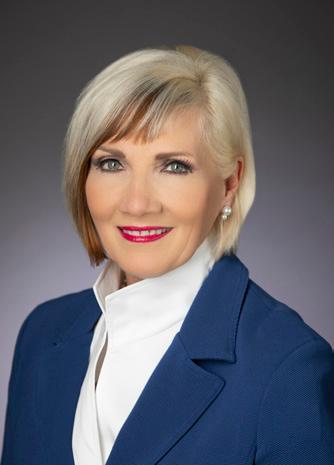
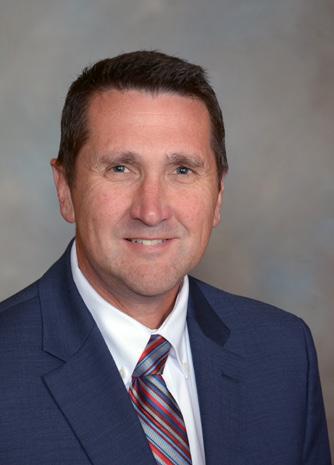
OASA
Dr. Pam Deering, CCOSA/OASA Executive Director Derald Glover, OASA Assistant Executive Director
Spring is a busy time for OASA as we continue to travel to meet with school leaders throughout the state and also work on advocacy issues with the legislature in session. Over 60 OASA members attended the AASA Conference on Education in San Diego in February. Several of our members led sessions around leadership and teamwork. We are proud that our AASA membership has grown. AASA offers many resources and opportunities for Oklahoma leaders to share their expertise during the year and at the conference.
Earlier this month, the OASA officers attended the AASA Leadership Conference in New Orleans, the site of the 2025 AASA Conference on Education. We used this time to plan as a team for OASA next year along with attending leadership sessions with other state leaders and their executive directors. Dr. Deering was elected to serve as an officer in the Association of State Executives in the role of Secretary. She will progress to President in two years.

The following list represents the 2024-2025 OASA District Directors who are the superintendents in their respective school districts.
Dixie Purdy, Guymon Schools, District 1
Scott Cline, Waynoka Schools, District 2
Dr. Mike Simpson, Guthrie Schools, District 3
Shawn Haskins, Blackwell Schools, District 4
Rob Miller, Bixby Schools, District 5
Pat Dodson, Grove Schools, District 6
Dr. Nick Migliorino, Norman Schools, District 7
Dr. Jeff Taylor, Pretty Water Schools, District 8
Dr. Aaron Espolt, Shawnee Schools, District 9
Erik Puckett, Hilldale Schools, District 10
Ginger Knight, Woodall Schools, District 11
Jason Goostree, Sentinel Schools, District 12
Nathaniel Meraz, Elgin Schools, District 13
Jerime Parker, Amber-Pocasset Schools, District 14
Jimmie Dedmon, Walters Schools, District 15
Dr. Toby Ringwald, Wayne Schools, District 16
Lee Northcutt, Caddo Schools, District 17
Dr. Rachel Pugh, Wister Schools, District 18
Russell Noland, Antlers Schools, District 19
Tony Hancock, Caddo Kiowa Tech Center, District 20
We thank the following leaders who served on the Executive Committee for OASA over the past years: Mark Bowlan, Grove Schools Superintendent; Matt Holder, Sulphur Schools Superintendent; and Chad Hance, Cache Schools Superintendent.
As of this writing, our state award winners have not yet been determined. But we are able to announce our OASA District Superintendents and OASA Assistant Superintendent/Central Office Winners. They are as follows:
OASA District Superintendents of the Year
Keith Campbell, Balko Schools, District 1
Kyndra Allen, Laverne Schools, District 2
Dr. Mike Simpson, Guthrie Schools, District 3
Rick Rogers, Shidler Schools, District 4
Dr. Margaret Coates, Owasso Schools, District 5
Dr. Terry Saul, Sequoyah Schools, District 6
Dr. Angela Grunewald, Edmond Schools, District 7
Kelly Spradlin, Mannford Schools, District 8
Dr. Matt Posey, Bethel Schools, District 9
Dr. Jarod Mendenhall, Muskogee Schools, District 10
Terry Heustis, Westville Schools, District 11
Larry Johnson, Burns Flat-Dill City Schools, District 12
Nathaniel Meraz, Elgin Schools, District 13
Charles Bradley, Mustang Schools, District 14
Dr. Channa Byerly, Duncan Schools, District 15
Mark Moring, Davis Schools, District 16
Duane Merideth, Durant Schools, District 17
Scott Kempenich, Poteau Schools, District 18
Brandon Frazier, Valliant Schools, District 19
Julie McCormick, Gordon Cooper Technology Center, District 20
43 SPRING 2024 | better schools ASSOCIATION UPDATES
Jenks Superintendent Dr. Stacey Butterfield, Derald Glover, Union Superintendent Dr. Kirt Hartzler, and Dr. Pam Deering at the AASA Conference on Education in San Diego.
OASA District Asst. Superintendent/Central Office
Administrators of the Year
Julie Edenborough, Guymon Schools, District 1
Jerry Burch, Woodward Schools, District 2
Dr. Angela Rhoades, Enid Schools, District 3
Beverly Moore, Pawhuska Schools, District 4
Kimberly Coody, Glenpool Schools, District 5
Renae Dozier, Grove Schools, District 6
Dr. LaShonda Broiles, Midwest City-Del City Schools, District 7
Johnny Bilby, Sapulpa Schools, District 8
Angela Willmett, Seminole Schools, District 9
Lisa Yahola, Muskogee Schools, District 10
Sharon Ballew, Tenkiller Schools, District 11
Steven Callen, Weatherford Schools, District 12
Lynn Cordes, Lawton Schools, District 13
Jerry Bray, Chickasha Schools, District 14
Brenda Parker-Tillian, Marlow Schools, District 15
Bart Watkins, Blanchard Schools, District 16
Wesley Burnett, Kingston Schools, District 17
Angel Morrison, Heavener Schools, District 18
Shirley Potts, Holly Creek Schools, District 19
Denny Prince, Mid-America Technology Center, District 20
Looking ahead, the OASA Executive Committee will host a summer leadership summit to discuss plans and actions for the upcoming year. OASA is the place for school superintendents and their central office leaders! ■
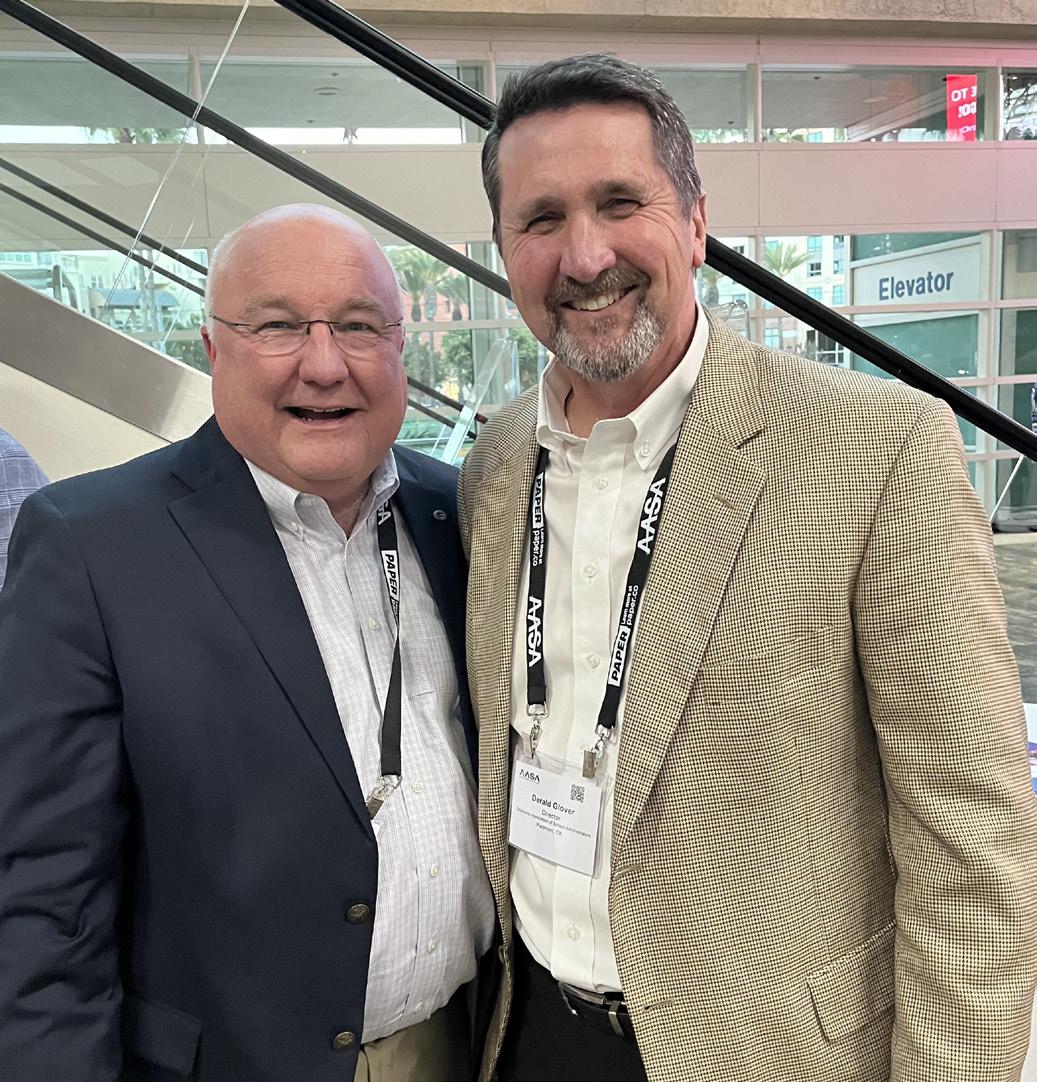
The Oklahoma Association of Youth Services (OAYS) is dedicated to fostering healthy habits, preventing tobacco use and promoting strong life skills for 3-8th grade students.


Transforming Adversity Into Opportunity
Okmulgee/Okfuskee Successful Futures paired with Henryetta Public Schools to provide support instead of consequences for students using tobacco. By utilizing this partnership, the team was able to change this challenging landscape into a hopeful one.
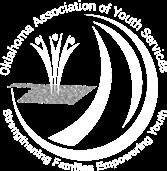
44 better schools | SPRING 2024 ASSOCIATION UPDATES
Guthrie Superintendent Dr. Mike Simpson with Derald Glover at the AASA Conference on Education.

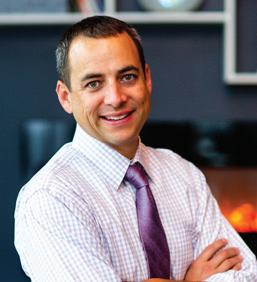
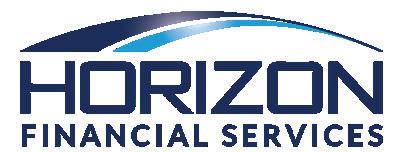
Contact me today to get started! › OK Teacher’s Retirement System › Detailed Analysis of Pension Options › Spousal and Beneficiary Choices › EESIP (Wear Away) & Salary Caps › Social Security › Delayed Retirement Credits › Restricting to Spousal Record › Earnings Limits & Taxation of Benefits › Retirement Accounts › Regulations, Income & Legacy Planning › Asset Allocation & Risk Analysis I WILL HELP YOU NAVIGATE: RICHARD COLLINS www.HorizonOK.net Financial Advisor of GWN Securities, Inc. 405-359-7500 | RichardCollins@HorizonOK.net Securities & Registered Investment Advisory Services offered through GWN Securities, Inc., 11440 N. Jog Road, Palm Beach Gardens, FL 33418 (561) 472-2700 Member FINRA & SIPC. Horizon Financial, GWN Securities, CCOSA are non-affiliated companies. Horizon Financial Services and its representatives do not represent, nor are they affiliated with the Oklahoma Teacher’s Retirement System (OKTRS).


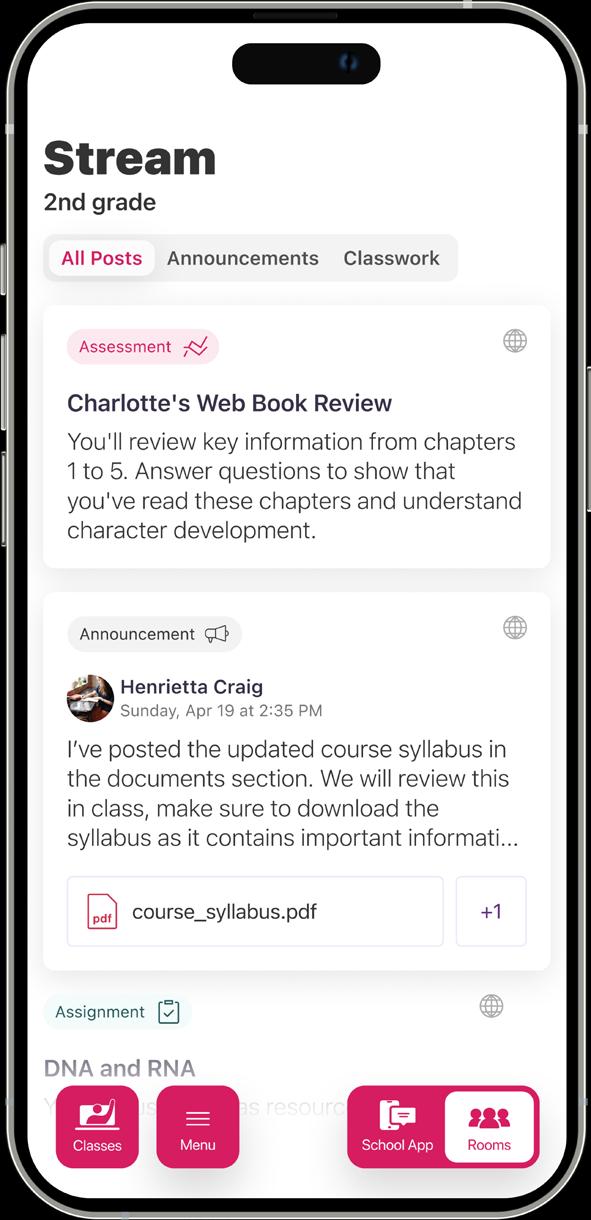
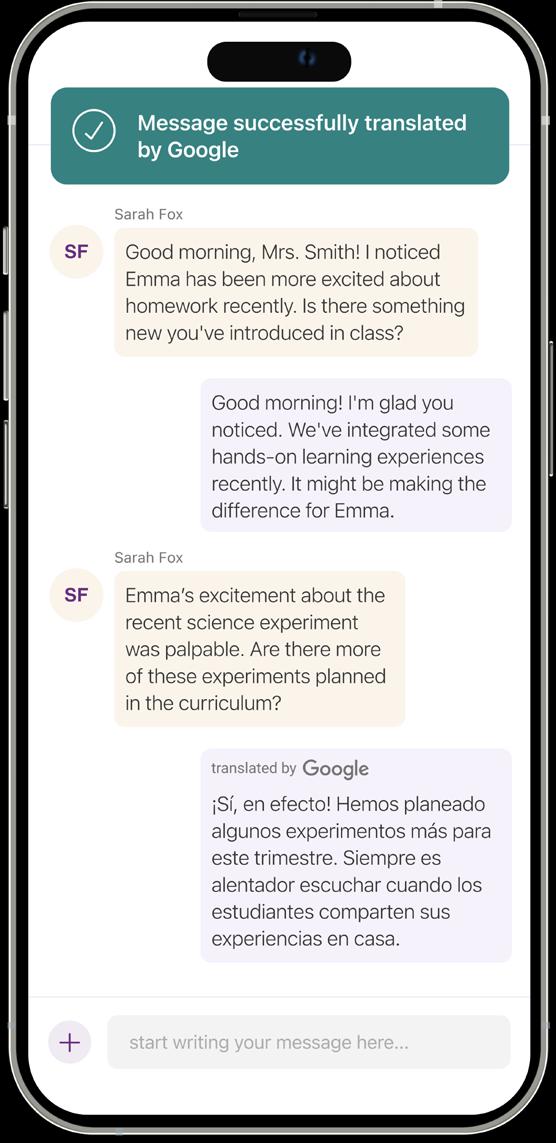
Say hello to Rooms Two-way communication and messaging integrated directly with your school app. apptegy.com
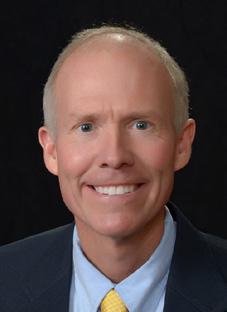
OASSP / OMLEA
Chris LeGrande, OASSP/OMLEA Executive Director
OASSP membership continues to grow during the 2023-2024 membership year, with 885 individuals who have joined our association. This represents an increase of 42 members since the last update given to the CCOSA Executive Committee in February. We are working diligently to top the 900 membership mark to ensure CCOSA meets its goal of over 3,100 active members.
During the week of March 10-13, OASSP President Melissa Barlow, Yukon High School; NASSP State Coordinator Eric Fox, Jenks High School; and OASSP/OMLEA Executive Director Chris LeGrande joined over 400 school leaders and state directors in Washington, D.C., for the annual National School Leaders Advocacy Conference. The event was jointly hosted by NAESP and NASSP. Our contingent of Oklahoma school leaders also included OAESP Executive Director Glen Abshere, NAESP State Representative and Federal Relations Officer Andrea Sifers, Fort Gibson; OAESP President Traci Newell, Elgin; and OAESP President-Elect Tara Burnett, Woodward. We conducted successful meetings with five of the seven Oklahoma congressional offices highlighted by Java with James, a monthly coffee meet and greet hosted by Senator James Lankford. The three-day conference included sessions on addressing educator shortages; advocating for school safety, mental health, and violence prevention; planning state advocacy days and campaigns; and crafting personalized stories to share with legislators. The concluding conference session was a keynote presentation from the United States Secretary of Education, Dr. Miguel Cardona.
The information from the training sessions was put into practice as school leaders converged on Capitol Hill on day three to make
OASSP UPDATE
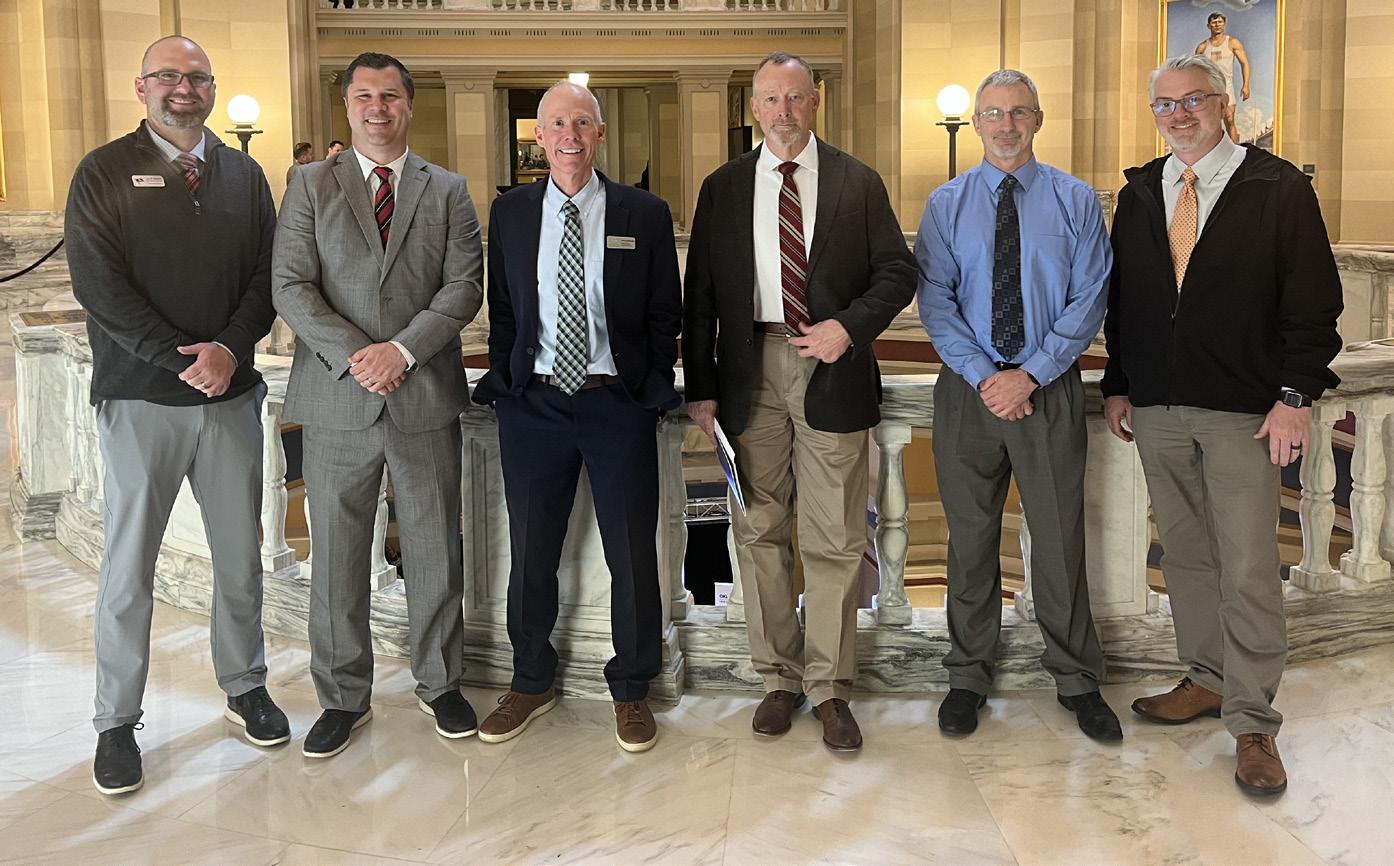
their voices heard loud and clear. Your Oklahoma team advocated for flat funding for Title programs, legislation addressing the mental health of students and staff, and incentives to strengthen the teacher/principal pipeline. A special thank you to CCOSA Education Policy & Research Analyst Dr. Jeanene Barnett and administrative assistant Jennifer Knight for scheduling meetings with our congressional members.
During the week of April 3-6, 2024, Ashley Mackey, Assistant Principal at Deer Creek High School and 2023-2024 OASSP Assistant Principal of the Year, traveled to Washington, D.C., for a leadership event sponsored by the National Association of Secondary School Principals. NASSP’s Trailblazing Leadership Week saluted and celebrated all 2024 State Assistant Principals of the Year as well as the National Honor Society’s Student Scholarship Finalists. Activities included professional learning sessions, networking opportunities with peers from across the country,
and participation in recognition ceremonies.
As an assistant principal for the past two years at Deer Creek High School, Mackey has played an instrumental role in the research and development of the Deer Creek Transition Center for students with special needs. She has also implemented the “Bright Idea” award in which a staff member is recognized weekly for an innovative teaching strategy that positively affects student achievement. Ashley will also be recognized as the Oklahoma Assistant Principal of the Year at the CCOSA Summer Leadership Conference in June 2024.
Elections for OASSP PresidentElect are underway, and nominees include Joe Ballard, Principal of Poteau High School; and David Chandler, Principal of Buses, Norman Public Schools. Current President Melissa Barlow will present the winner to membership for approval at the OASSP Business Meeting Breakfast on June 14 during the CCOSA Summer Leadership Conference. ■
47 SPRING 2024 | better schools ASSOCIATION UPDATES
Joe Ballard, Poteau High School Principal; Steven Goss, Keys High School Principal; Chris LeGrande; Bob Coates, Cushing High School Principal; Russell Tillery, Sallisaw High School Principal; and Shawn Winton, Sallisaw High School Assistant Principal advocated for schools at the State Capitol in April.
OMLEA UPDATE
OMLEA membership is based on members of CCOSA’s umbrella associations who also elect to join the Oklahoma Middle Level Education Association. For 2023-2024, we presently have 472 members, an increase of 17 from the last CCOSA Executive Committee report in February 2024.
On Wednesday, April 3, 2024, principals and special education directors gathered at the CCOSA office for a day of advocacy efforts. The morning began with the weekly legislative update on bills advancing through committees that directly affect public education. Afterwards, Dr. Jeanene Barnett, CCOSA’s Education Policy & Research Analyst, and CCOSA Legislative Consultant Megan Benn introduced attendees to advocacy protocols and shared tips for conducting successful meetings with elected officials. Principals and special education directors then converged on the Capitol, where they met with various state representatives and senators to share stories and advocate for public schools in their respective communities. The day concluded with a catered luncheon at the CCOSA conference room, where participants shared insights from their legislative visits. Relationships were fostered, and our voices were heard. Thank you to all school leaders who were able to attend!

On April 12, 2024, Mustang High School hosted the annual Oklahoma Association of the National Honor Society’s State Convention. Six schools sent representatives, with 61 students and sponsors in attendance. This year’s event theme was “Hollywood: Spotlight on NHS!” Attendees were treated to a keynote address from Heady Coleman – pastor, father, friend, encourager, and community builder. Students then participated in a series of breakout sessions on topics including effective communication, service within the school, and college and scholarship guidance. The day concluded with a college fair, a leadership activity, and a service project for the Oklahoma Humane Society in which students assembled pet adoption kits from items they had collected. A special thank you to OANHS President Olivia Bennett, Mustang High School, for her tireless efforts planning and coordinating this annual event and for keeping us updated throughout the year with monthly newsletters.
Elections for the 2024-2025 OMLEA PresidentElect are in progress. This year’s nominees are Kurt Myers, Principal of Etta Dale Junior High, El Reno Public Schools, and John Potter, Assistant Superintendent of Human Resources & Operations, Pryor Public Schools. We will update you soon with election results. ■

48 better schools | SPRING 2024 ASSOCIATION UPDATES
ACOUSTICS • COMFORT • COLOR FLEXIBILITY • MOISTURE MANAGEMENT • CARPET, LVT, ENTRANCE FLOORING LEARN MORE
a FOUNDATION FOR LEARNING





OUR SERVICES • Architecture • Programming • Feasibility Studies • Master Planning • Sustainable Design • Interior Design • Safe Rooms Architectural Solutions Inspiring Community Pride • Project Management • Code Compliance • Permitting • Value Analysis • Bond Support • Branding Solutions • Building Scanning* Through Solutions Partner GreenLight 360 * 11100 Stratford Drive Ste. A100 Oklahoma City, OK 73120 405.749.4642 renaissancearchitecture.com WWW.BANCFIRST.BANK SERVING OVER 50 OKLAHOMA COMMUNITIES Loyal TO THE FUTURE OF OKLAHOMA Ryan Hill ryan@ccrdisaster.com http://ccrdisaster.com CCR is owned by Larry Landsteiner in the Tulsa area and Ryan Hill in the OKC area. They have over 35+ combined years in the restoration business. OKLAHOMANS WORKING FOR OKLAHOMANS. Locally owned and operated.
Paving

2024 Cognia, Inc. As the premier school improvement organization in the world, our research-based solutions enhance student engagement, instructional practice, and school culture. Let’s pave the way for every learner together. christina.mccreary@cognia.org
cognia.org


©
the
for every
way
learner
Simplify
CONTACT
TODAY Terrie
terriem@806technologies.com Maintain Compliance. Foster Excellence.
Title I federal compliance with Title1Crate. Our built-in templates and state-specific checklists help districts stay organized and audit-ready. Easily track and manage all documentation for seamless audits
US
McAden 972.977.0990

OAESP
Glen Abshere, OAESP Executive Director
OAESP membership continues to grow this year, with 852 members currently. Of those 852 members, 202 – or nearly one-fourth! – are new to OAESP this year. Thank you for being a member of OAESP!
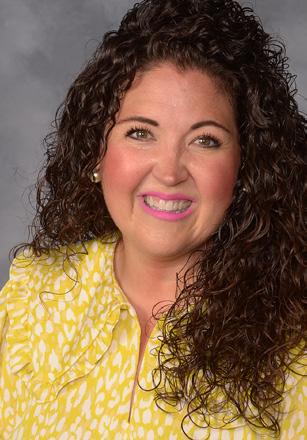
The OAESP Principal of the Year program honors outstanding elementary and middlelevel principals who ensure that America’s children acquire a solid foundation for lifelong learning and achievement.
The OAESP Administrator of the Year/ National Distinguished Principal (NDP) application packet was sent to 19 principals nominated by their peers and/or supervisors. The NDP selection committee reviewed and scored the applications. Ashley Hoggatt, Principal of D.D. Kirkland Elementary School, Putnam City Schools, was named the OAESP Principal of the Year and the NAESP National Distinguished Principal. Margaret Saunders Simpson, Principal of Wilson Elementary Arts Integration School, Oklahoma City Public Schools, was named the OAESP Principal of Excellence. Jera Kierspert, Principal of Roosevelt Elementary School, Ponca City Public Schools, was named the James R. Burnett Principal of Distinction.
The Annual NAESP School Leaders Advocacy Conference was held March 10-13, 2024, in Washington, D.C. Attending this year was OAESP President Traci Newell, OAESP President-Elect Tara Burnett, State Representative and Federal Relations Officer Andrea Sifers, and Executive Director Glen Abshere. We had great visits promoting public education with Oklahoma senators and congressional representatives.
The OAESP Presidential election took place in March. Amy Estes, Principal of Sallie Gillentine Elementary School, Hollis Public Schools, was voted as the next OAESP President-Elect. She will begin her role in that office in July.

The OAESP Constitution and Bylaws were amended to update some language to current practice. Thank you to those who voted.
The second cohort of the Oklahoma Principal Leadership Institute (OPLI) just wrapped up its year. OPLI meets seven days through the school year and takes a deep dive into effectively leading schools. It is designed for those who are beyond their first year of principalship, or assistant principals beyond the first year. We tackle topics such as school culture, professional learning communities, leader self-care, having difficult conversations, using student data to drive instruction, advocacy, and retaining and recruiting top talent, to name just a few. Dates for the 20242025 cohort have been announced: July 23-25 and November 12-13, 2024, and March 3-4, 2025. Attendees are selected through an application process. The July experience includes

boat rowing, a ropes course, and white-water rafting.
The CCOSA New Principals Academy is open to all principals and assistant principals in their first five years of service. The group meets four times in the fall semester. The dates of the Oklahoma City Academy are Sept. 24, Oct. 22, Nov. 19, and Dec. 11, 2024. The dates of the Tulsa Academy are Sept. 26, Oct. 23, Nov. 20, and Dec. 12, 2024. Registration will open in July.
The CCOSA Principal Mentoring and Coaching program meets three times in the fall semester. This program is designed for veteran principals who may mentor other principals or for superintendents or central office administrators who mentor and supervise building leaders. Upcoming dates for the program are Sept. 19, Oct. 29, and Dec. 3, 2024. Registration will open in June.
The NAESP National Conference will be held this summer in Nashville, Tennessee, on July 15-17, 2024. Some of the speakers include Jon Gordon, bestselling author, and Rehema Ellis, Chief Education Correspondent for NBC News. Registration is now open at www.theunitedconference.org. ■
51 SPRING 2024 | better schools ASSOCIATION UPDATES
Chris LeGrande, Eric Fox, Glen Abshere, Andrea Sifers, U.S. Sen. James Lankford, Melissa Barlow, Tara Burnett, and Traci Newell at the NAESP National Leaders Conference
Ashley Hoggatt

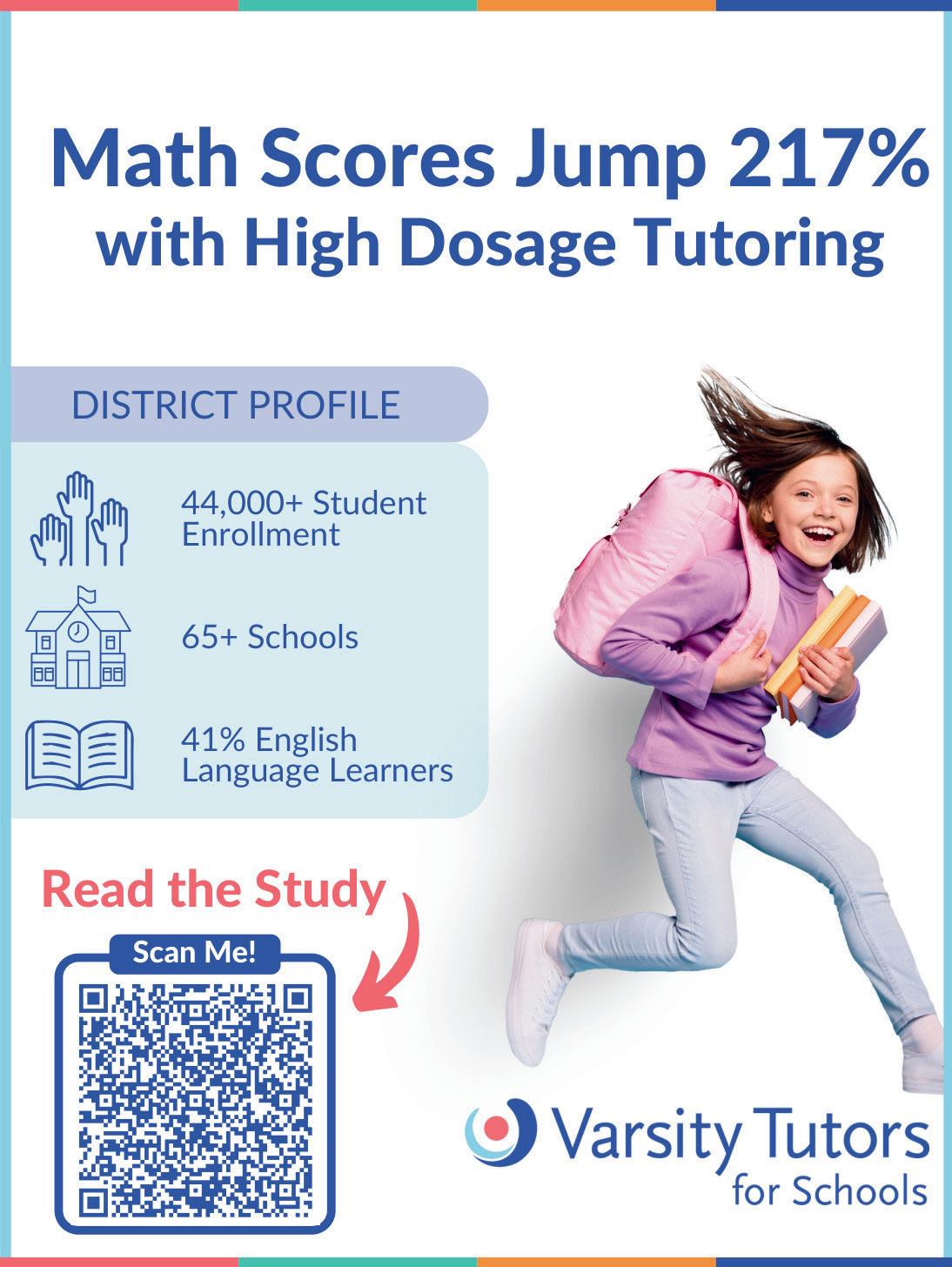

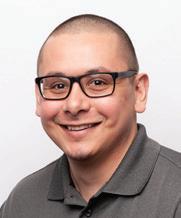

EXPERIENCE 1954 FOUNDED 1,300 K-12 PROJECTS 100 PUBLIC SCHOOLS Tuttle High School Softball Tuttle, Oklahoma Your Oklahoma Sales Representative is: Rico Velazquez Mobile: 405.479.5693 rico.velazquez@musco.com Control from foundation to poletop from the light source to the field, preserving the night sky assuring the results you expect, day 1. . . year 1. . . and for 25 years. Learn more at www.musco.com ©2024 Musco Sports Lighting, LLC · ADOK24-1

ODSS
Andrea Kunkel, CCOSA General Counsel & ODSS Executive Director
ODSS is pleased to announce its 2024 award recipients. Melisa Kifer, Executive Director of Special Services for Stillwater Public Schools, is the 2024 Director of the Year. Leslie Burnett, Director of Special Services, Pryor Public Schools, is the recipient of the Maurice Walraven Award. Kristi Fritz, a graduate student at Northeastern State University, is the winner of the ODSS $1,000 Jimmie Prickett Scholarship. All will be honored at CCOSA’s Summer Leadership Conference in June.
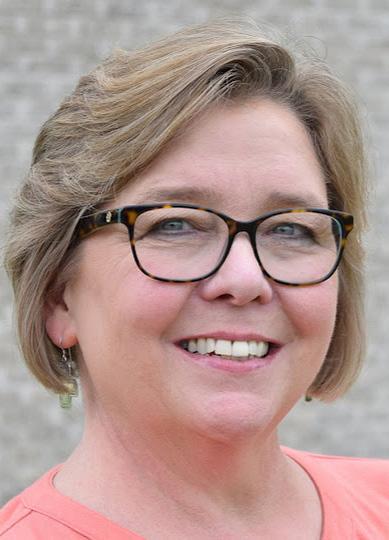
Melisa Kifer began her career as a special education teacher, then served as compliance coordinator before moving into the Executive Director of Special Services position for Stillwater Public Schools. Superintendent Uwe Gordon describes Kifer as “the kind of creative, progressive, divergent thinker we all hope will work with our children. Her ability to lead students and faculty and give them practical application never ceases to amaze me.”
Under Kifer’s planning and guidance, the district recently completed a five-year transition to digital special education and Section 504 records. Recognizing the importance of identifying additional funding sources for her department, she implemented a Medicaid billing system for speech/language therapy for the 2023-2024 school year, with plans to add physical and occupational therapy next year. Kifer was also instrumental in creating the Stillwater Pioneer Pathfinders, a transition program for students with special needs ages 18 to 22. Stillwater’s first-year Director of Special Services, Austin Hula, said, “When we are attending conferences or ODSS meetings, I will often hear, ‘You’re lucky you are working with one of the best in the state.’” His response? “I could not agree more.”

Leslie Burnett works as the Director of Special Services for Pryor Public Schools. Certified school psychologist and coworker Sheila Wofford nominated Burnett for the Maurice Walraven Award, which recognizes an individual who has made a valuable, positive, and enduring contribution to the education of children with disabilities. Wofford credited Burnett’s implementation of therapy dogs
in Pryor Schools for creating a “nurturing and inclusive environment where children with disabilities can thrive and excel.” Burnett has integrated the dogs into various aspects of the educational curriculum, including reading sessions, and implemented animal-assisted therapy programs to improve students’ communication skills, foster socialization, and enhance sensory integration. Burnett has also raised awareness about the benefits of therapy dogs in education within her district, community, state, and at the national level.

Kristi Fritz developed her passion for working with individuals with special needs when she held her first job as an assistant at Home of Hope, a group home for individuals with developmental disabilities. She plans to graduate from NSU with a master’s degree in Special Education Autism Spectrum Disorders at the end of the spring 2025 semester and continue her work as a special education teacher for Vinita Public Schools. ■

53 SPRING 2024 | better schools ASSOCIATION UPDATES
Melisa Kifer
Leslie Burnett
Kristi Fritz
READ TO LEAD
 By Traci Newell, Principal, Elgin Lower Elementary School
By Traci Newell, Principal, Elgin Lower Elementary School
A review of “Lead with Collaboration: A Complete Guide to Transforming Staff Meetings”
“Lead With Collaboration: A Complete Guide for Transforming Staff Meetings” by Allyson Apsey and Jessica Gomez offers an enlightening perspective on leadership, emphasizing the power of turning your staff meetings into opportunities for collaboration. As leaders, we know that staff meetings can often be unproductive and something many do not look forward to. The authors note that “When we build relationships, we build community,” and when we empower our staff in meetings and allow them to truly collaborate, they become highly invested.
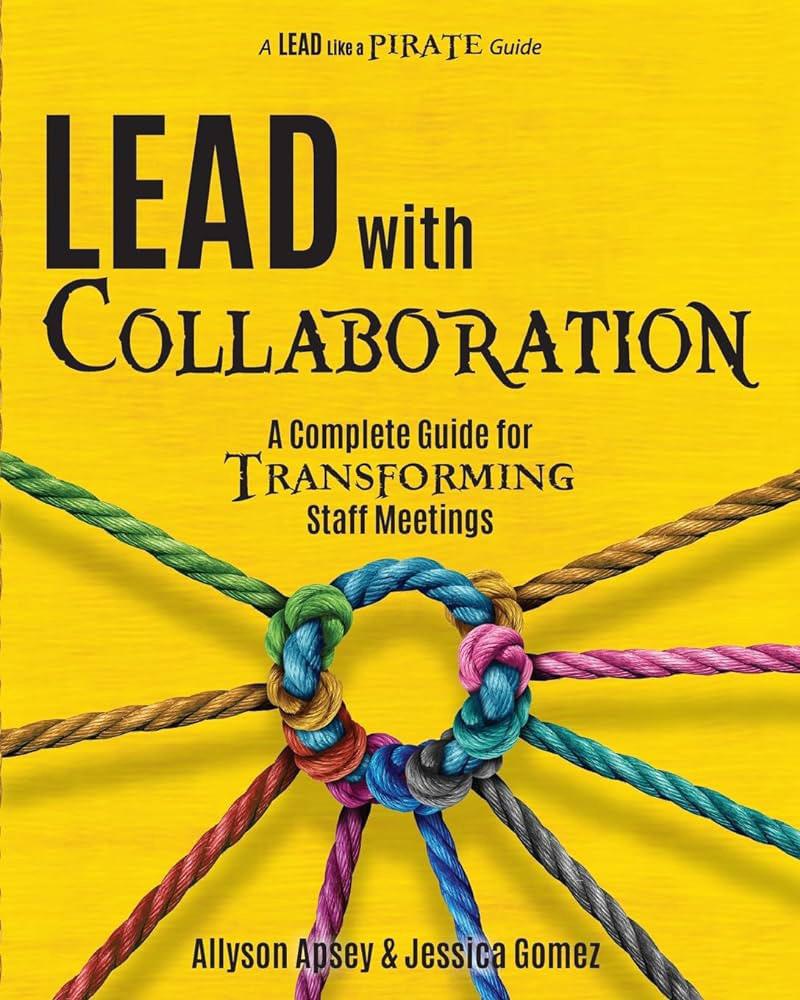
According to the authors, when we shift our focus from conducting informational meetings to purposeful meetings, they “become opportunities for team building, taking on challenges, and making real change.” One of my favorite sections in the book was Chapter 4: Celebrations. The authors shared simple strategies that are easy to implement. Team Celebration Boards is another activity that allows teams or grade levels to develop a team “board” designed to display any team “wins” or success stories. Activities range from silly,
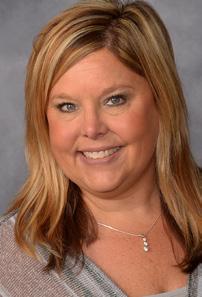
like Smarties Nose stack, where staff members see how many Smarties they can stack on their nose, to activities meant to get teams through tough times or be used as teachable moments.
Round Robin PD is an example of the latter. In this activity, each staff member is asked to share a brief best practice strategy during the meeting. Through practical advice and a multitude of ready-to-go strategies, the authors illustrate how leaders can harness the collective intelligence and creativity of their teams to ensure staff meetings are relevant and meaningful.
The book emphasizes the importance of fostering a culture of trust and transparency, one where the perspectives of all staff are valued and leveraged. “Lead with Collaboration” provides valuable guidance for leaders at all levels who aspire to cultivate collaborative environments. ■
Traci Newell is a graduate of Oklahoma State University, where she obtained her B.S. degree in Early Childhood Education. She went on to receive a master's degree in Elementary Administration from SWOSU. After serving as a teacher and principal in Lawton Public Schools for 24 years, she has worked as Principal of the Lower Elementary School in Elgin the last six years. She is a member of the CCOSA Executive Committee.
54 better schools | SPRING 2024














 Pam Deering, Ph.D. CCOSA/OASA Executive Director
Pam Deering, Ph.D. CCOSA/OASA Executive Director











 – Stephanie Williams, Executive Director of Student Services, Norman Public Schools
– Stephanie Williams, Executive Director of Student Services, Norman Public Schools







































































































 By Traci Newell, Principal, Elgin Lower Elementary School
By Traci Newell, Principal, Elgin Lower Elementary School























